Yuval Noah Harari - 5 Lessons For The 21st Century: How To SURVIVE & THRIVE In The New World
Last updated: Jun 4, 2023
This video by Tom Bilyeu discusses five lessons for surviving and thriving in the 21st century, including the dangers of genetic engineering and artificial intelligence.
The video is a lecture by Yuval Noah Harari on how to survive and thrive in the 21st century.
Harari discusses the dangers of bioengineering and AI, citing historical examples such as the use of castration to create eunuchs in ancient China and the failure of Christianity to overcome human sexual urges.
He warns that these technologies could be used by politicians or religious movements for their own purposes, and emphasizes the need for caution and consideration of the potential consequences of technological development.
Harari also notes that AI is the first invention that can make decisions on its own, potentially taking power away from humans.
- Bioengineering has been used throughout history to create special kinds of humans, but genetic engineering poses significant dangers if used for negative purposes.
- AI is the first invention in history that can potentially take power away from humans, and its increasing decision-making power is a significant danger.
- Technological development should continue, but with careful consideration of potential negative consequences, particularly in the areas of AI and genetic engineering.
- Looking at history can provide insight into potential dangers of new technologies, and valuable lessons for navigating the challenges of new technologies.
- AI can improve decision-making processes and medicine, but can also be dangerous when in the wrong hands or not fully understood, and has the potential to eliminate human privacy completely.
- Genetic engineering can improve medicine and agriculture, but also lead to inequality and discrimination, and raises ethical questions about the definition of life and the role of humans in shaping it.
- Climate change is a global problem that requires global solutions, and reducing carbon emissions and transitioning to renewable energy sources is necessary.
- Education is essential for navigating the challenges of the 21st century, and should focus on developing critical thinking, creativity, and emotional intelligence, and be accessible to everyone.
- Humans need to be cautious about the unintended consequences of genetic engineering and AI, and come together as a big cooperative to address these dangers and have a global conversation about their ethical implications.
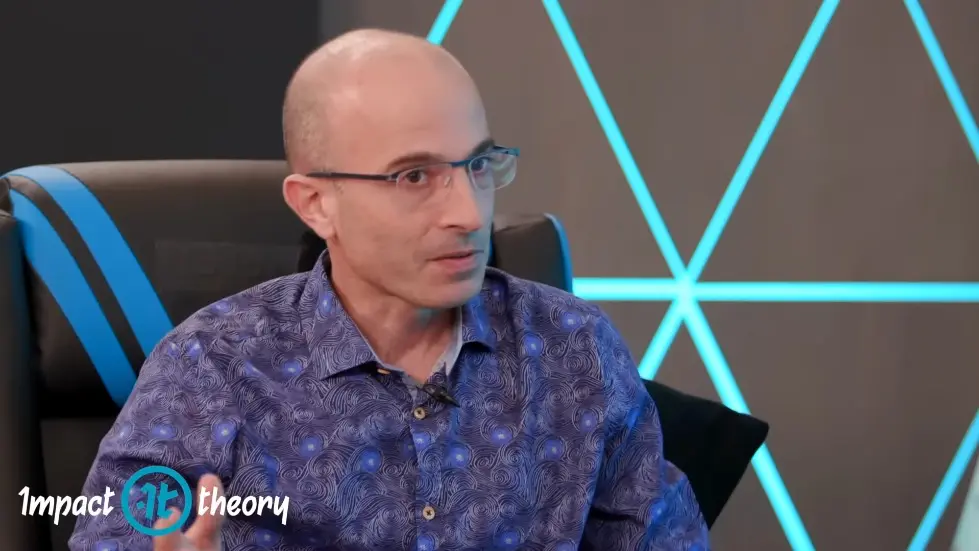
Bioengineering in History
- Chinese emperors used castration as a form of bioengineering to create eunuchs who posed less of a threat to their power.
- Other empires, such as the Byzantine and Islamic caliphates, also used bioengineering to create a special kind of human with intelligence and discipline.
- Christianity attempted to change humanity by discouraging sex, but failed to intervene deep inside the human genome.
- Fundamentalist religious regimes could potentially use genetic engineering to further their ideologies.
- Genetic engineering is irreversible and poses a significant danger if used for negative purposes.
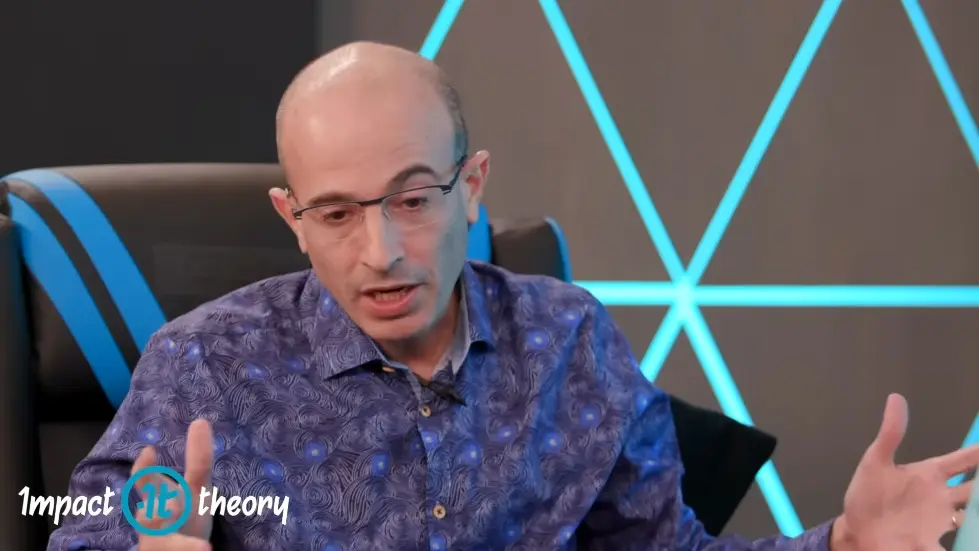
The Dangers of AI
- AI is the first invention in history that can potentially take power away from humans.
- Previous inventions, such as the atom bomb, still required human decision-making.
- AI can make decisions on its own, potentially taking power away from humans.
- Increasingly, AI is making decisions about people's lives, such as loan and job applications.
- The potential for AI to take power away from humans is a significant danger.
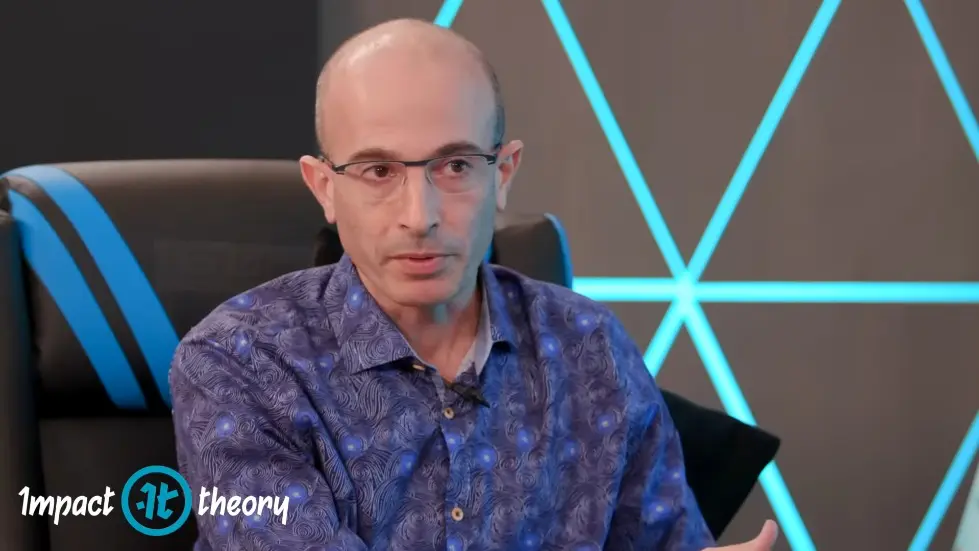
The Need for Careful Technological Development
- People who develop technology often think about the good uses, but need to consider the potential negative uses as well.
- Politicians and religious movements could potentially use technology for negative purposes.
- Genetic engineering is particularly dangerous because it is irreversible and could create a new species of human.
- Technological development should continue, but with careful consideration of potential negative consequences.
- AI and genetic engineering are two areas that require particular caution.
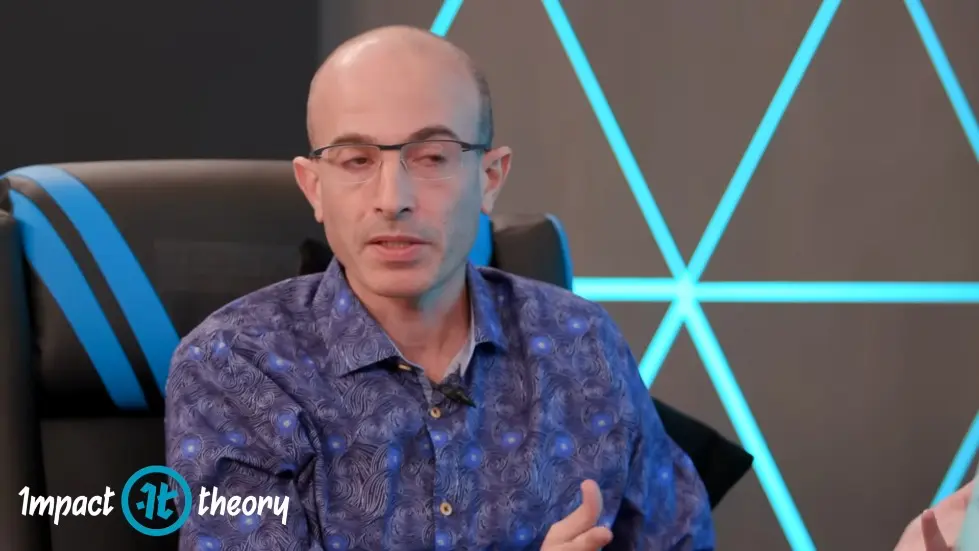
The Importance of Considering History
- Looking at history can provide insight into potential dangers of new technologies.
- Previous attempts at bioengineering and changing humanity have had limited success.
- AI is a completely new invention that poses unique dangers.
- Considering the potential negative uses of technology can help prevent negative consequences in the future.
- History can provide valuable lessons for navigating the challenges of new technologies.
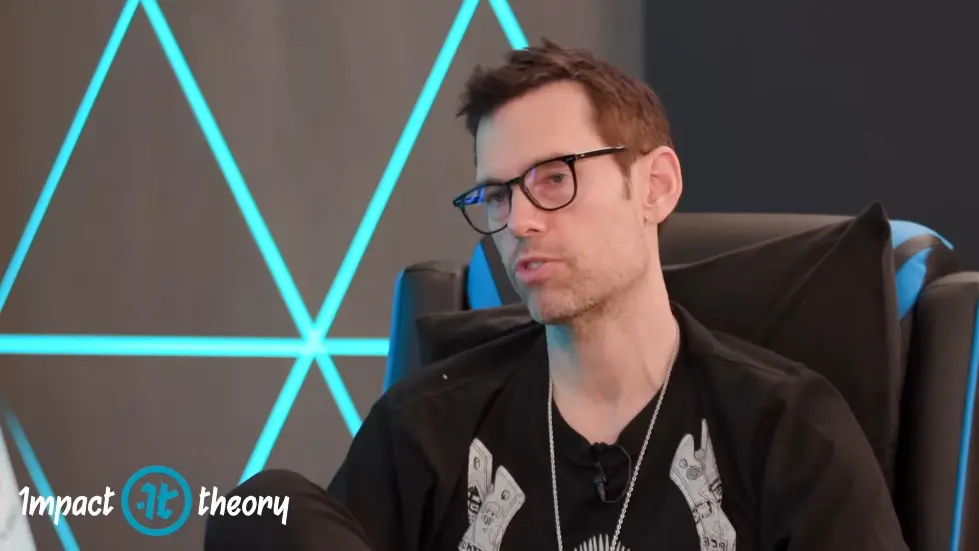
Dangers of Artificial Intelligence
- AI can improve decision-making processes and medicine.
- However, it can be dangerous when in the wrong hands or not fully understood.
- AI has the potential to eliminate human privacy completely.
- Regulating AI requires international cooperation, which may be difficult to achieve.
- Within a country, laws can be put in place to protect privacy and prevent concentration of information in one place.
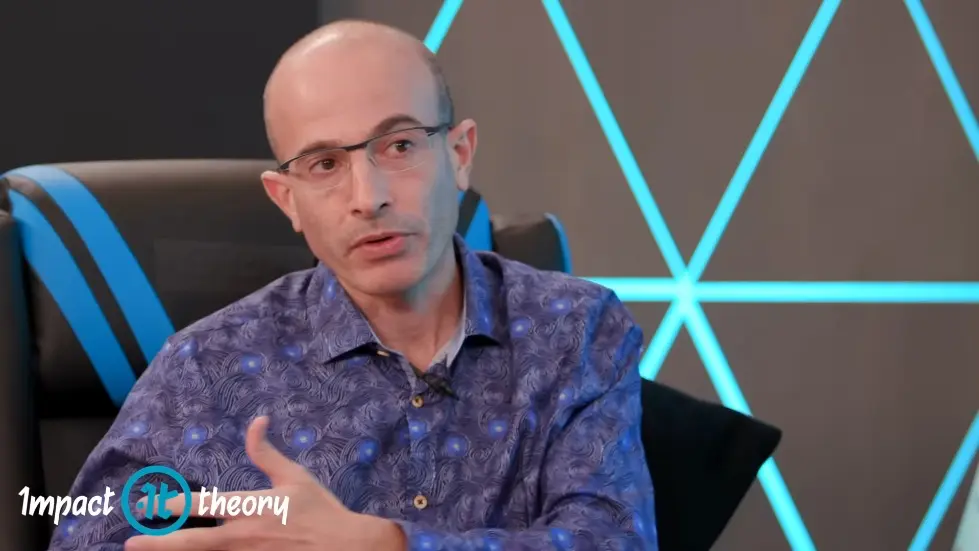
Genetic Engineering
- Genetic engineering can improve medicine and agriculture.
- However, it can also lead to inequality and discrimination.
- It raises ethical questions about the definition of life and the role of humans in shaping it.
- Regulating genetic engineering requires international cooperation and a global conversation about its implications.
- It is important to consider the long-term consequences of genetic engineering and not just short-term benefits.
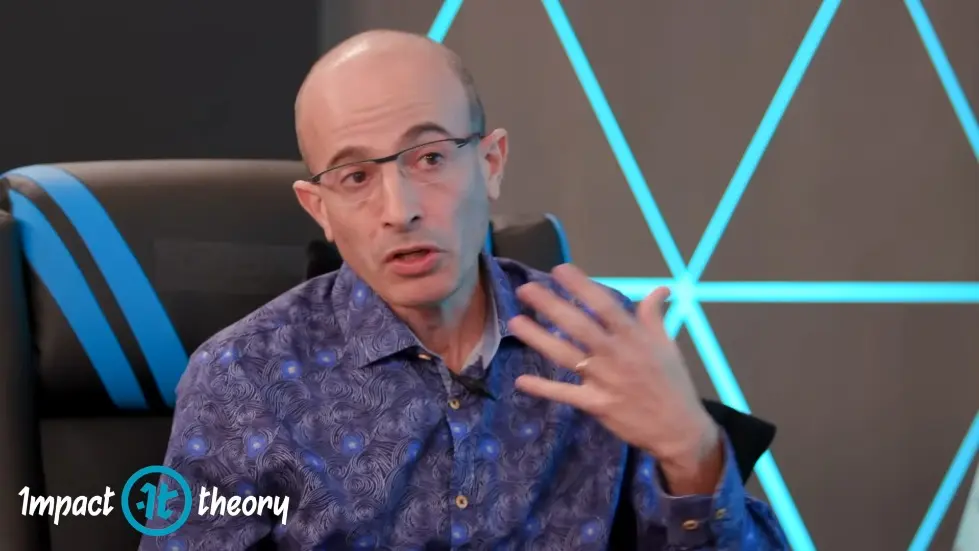
Climate Change
- Climate change is a global problem that requires global solutions.
- It is caused by human activity and can have catastrophic consequences.
- It is important to reduce carbon emissions and transition to renewable energy sources.
- Individual actions can make a difference, but systemic change is necessary.
- There is a need for international cooperation and political will to address climate change.
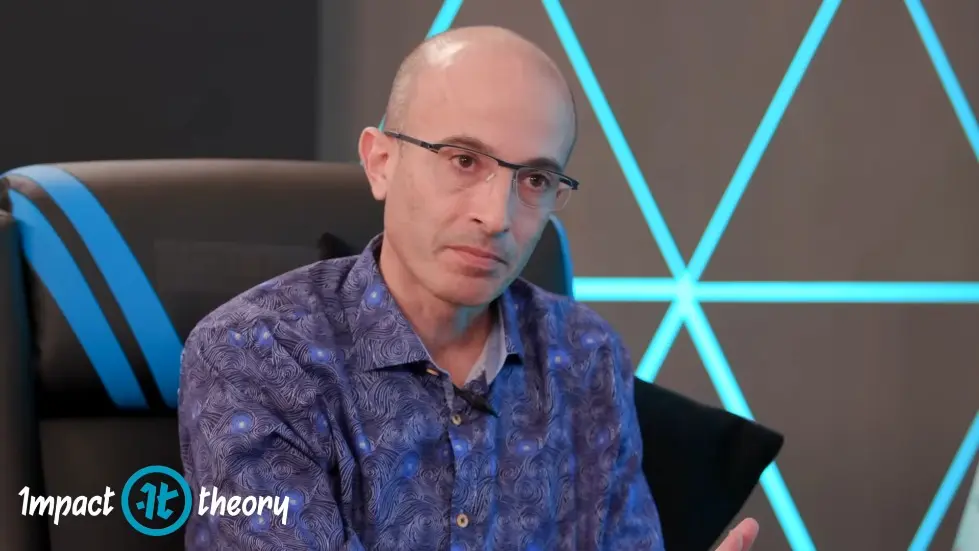
Education
- Education is essential for navigating the challenges of the 21st century.
- It should focus on developing critical thinking, creativity, and emotional intelligence.
- Education should be accessible to everyone, regardless of their background or socioeconomic status.
- It is important to rethink traditional models of education and embrace new technologies and approaches.
- Education should not just be about acquiring knowledge, but also about developing a sense of purpose and meaning.
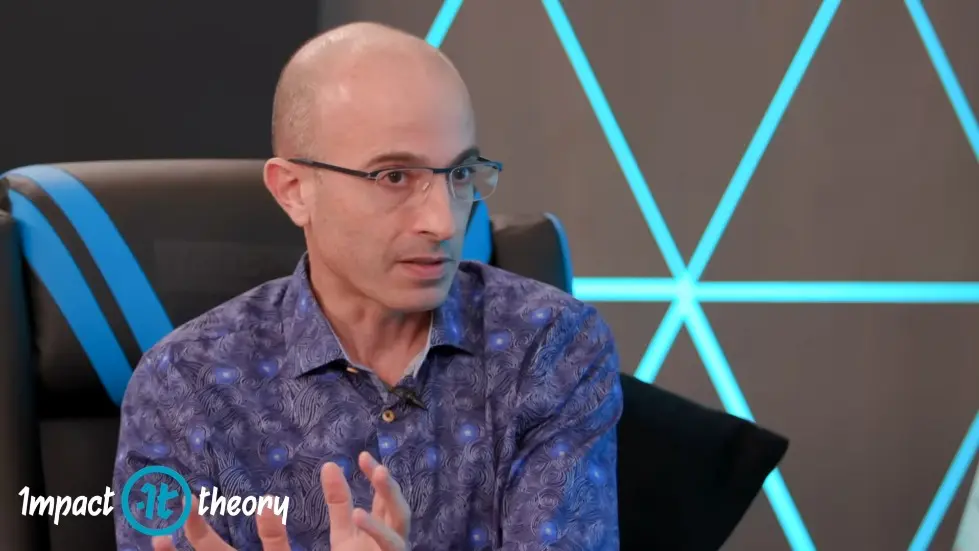
Views on Human Beings
- Ancient debates about what is a human being.
- Two camps: humans are embodied beings or humans are immaterial souls trapped in physical bodies.
- The metaverse is a replay of this argument.
- Can humans shift to the immaterial realm of the metaverse and leave their biological bodies behind?
- It is impossible or even dangerous to try and separate our mental existence from our bodily and physical existence.
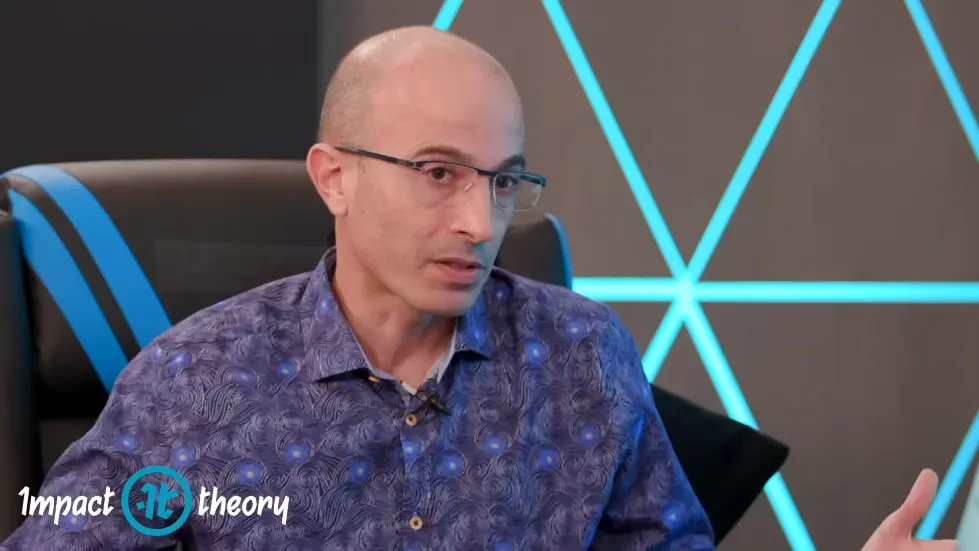
Grounded in Biology
- Some people are interested in an entirely virtual species inhabiting the metaverse.
- Uploading consciousness would be a copy of oneself, not the actual person.
- The metaverse is still interesting, but caution is advised.
- Feeding microbes, bonding, and paying attention to the body are important.
- People cannot live in the metaverse; it is a fun place to visit.
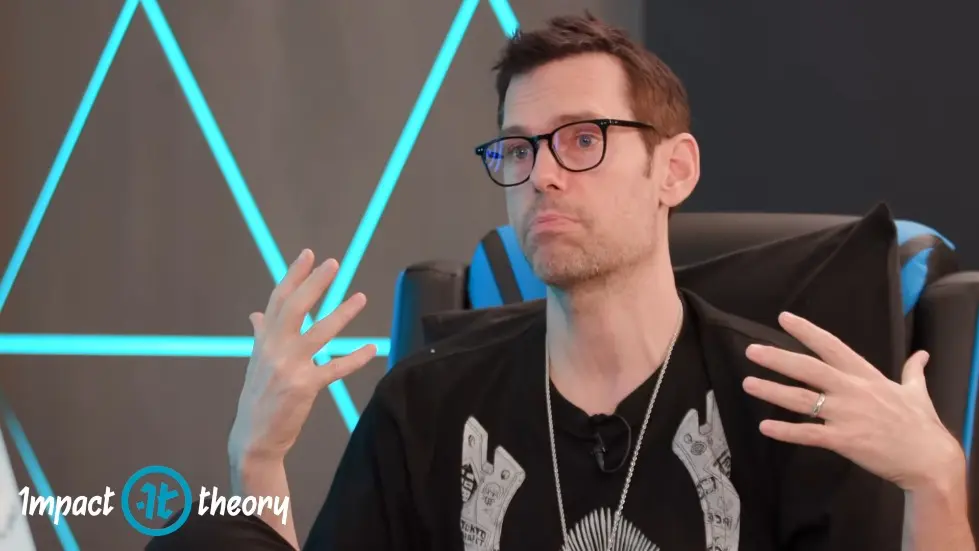
Social Media and Narrative
- Social media has been incredible in some people's lives, but it can also be deranging.
- People need to be thoughtful about their use of social media.
- The idea of narrative is important in navigating the virtual space.
- People tell themselves a narrative about what the virtual space is to avoid hitting major roadblocks.
- Religion may fill the Godlike hole in people's brains where they want to come together as a big cooperative.
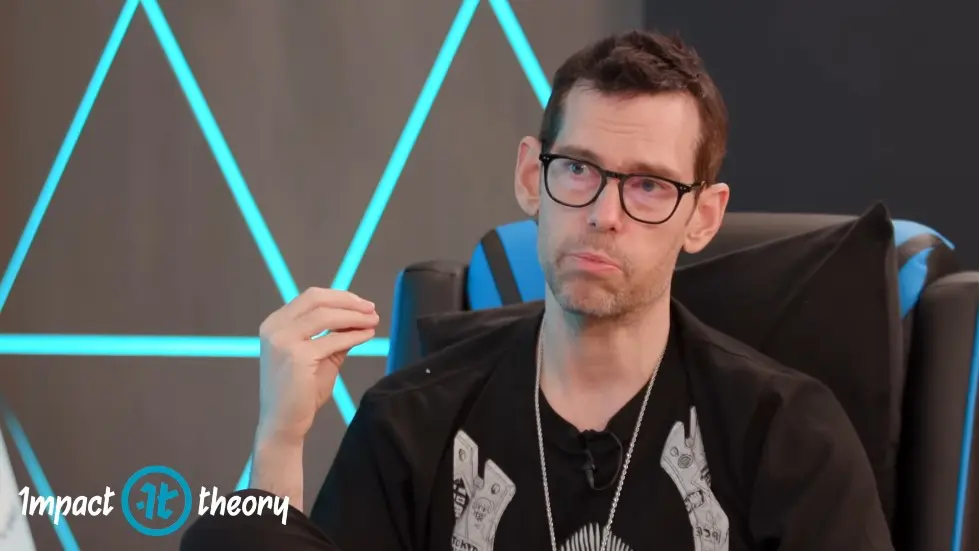
Dangers of Genetic Engineering and Artificial Intelligence
- Genetic engineering and artificial intelligence pose dangers to humanity.
- Humans need to come together as a big cooperative to address these dangers.
- There needs to be a global conversation about the ethical implications of these technologies.
- Humans need to be cautious about the unintended consequences of these technologies.
- Humans need to be aware of the potential for these technologies to exacerbate existing inequalities.
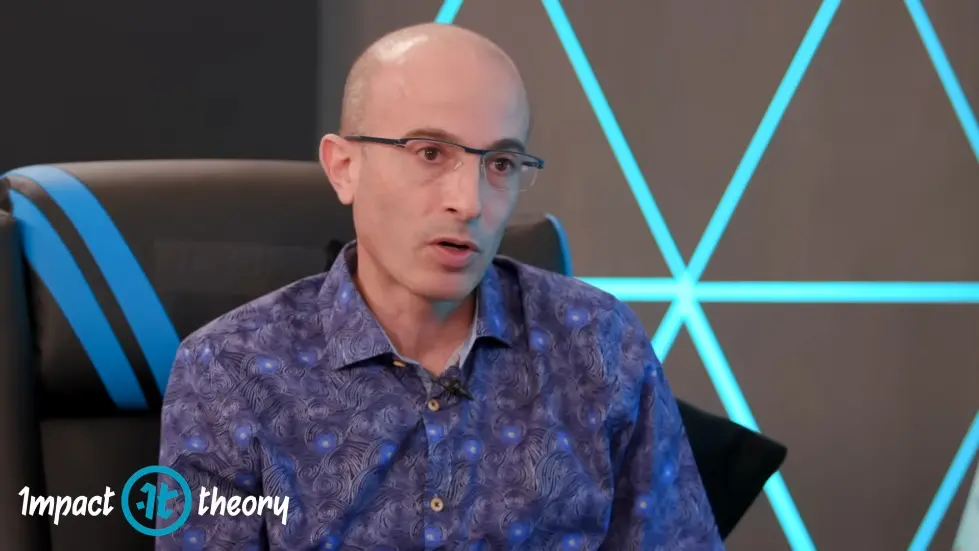
The Big Narrative
- The big narrative is the biological narrative that we are all Homo sapiens.
- We all have the same basic experiences, such as falling in love, having deep ties with family members, not wanting to be sick, not liking pain, and being afraid to die.
- You don't need God for these experiences or for morality.
- Empirical evidence shows that people won't just kill and murder without God.
- People will fall in line with whatever the dominant philosophy of their tribe is.
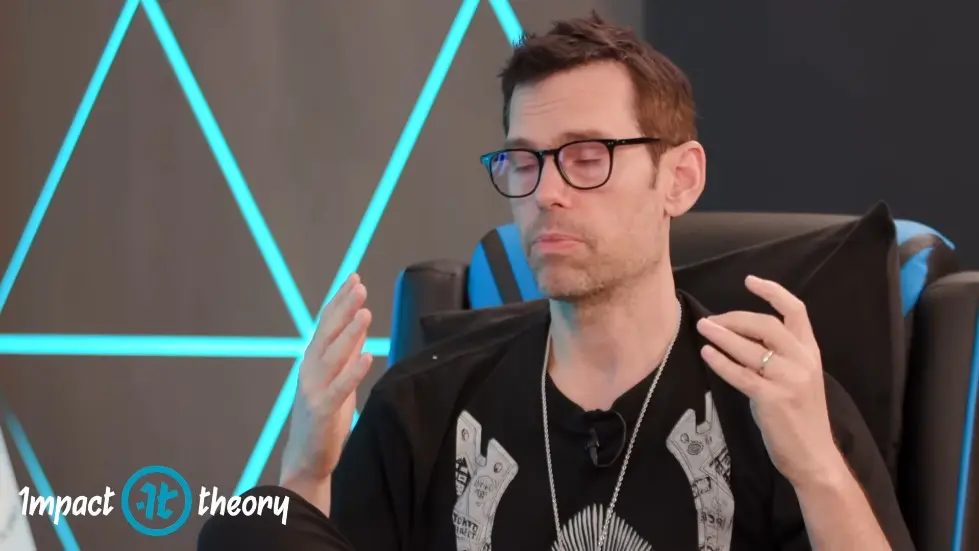
The God-Shaped Hole
- God doesn't stop terrible things from happening.
- We need morality, but we don't need God for it.
- The challenge is to make the biological experience a cool and infectious thing that brings people together.
- Viciousness was an effective way to build empires in the past, but nuclear weapons have changed the game.
- Belief systems can make a tribe unstoppable, not genetic superiority.
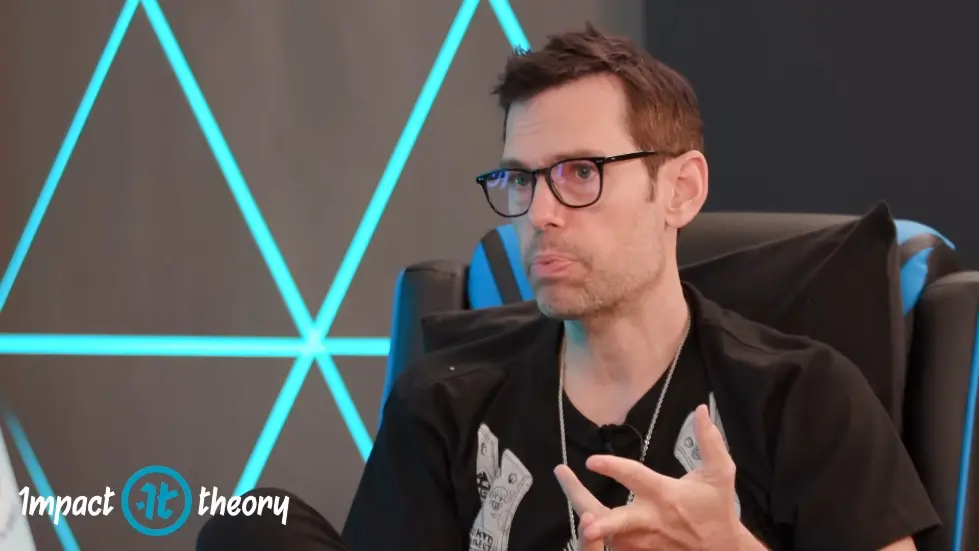
Artificial Intelligence
- AI is a game changer that will transform the job market and society as a whole.
- AI can do things that humans can't, such as processing vast amounts of data and making decisions based on that data.
- AI can also be used for surveillance and control, which poses a threat to privacy and freedom.
- AI can be biased and perpetuate discrimination if not programmed properly.
- AI could potentially become more intelligent than humans and pose an existential threat to humanity.
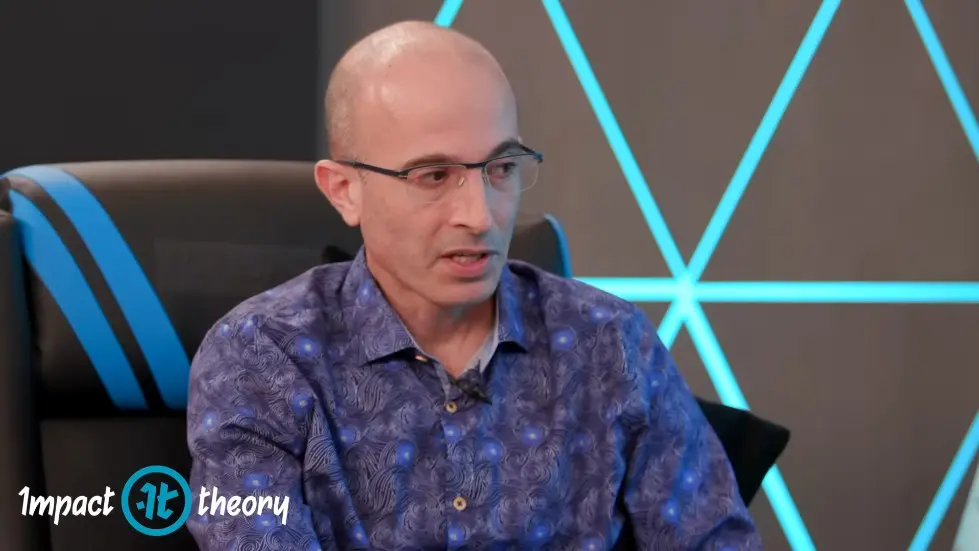
Genetic Engineering
- Genetic engineering is a game changer that will transform the human species.
- It can be used to cure diseases and enhance human abilities.
- It can also be used to create designer babies and widen the gap between the rich and poor.
- It raises ethical questions about the definition of human nature and the right to modify it.
- It could potentially create a new species of humans that are superior to the rest of us.
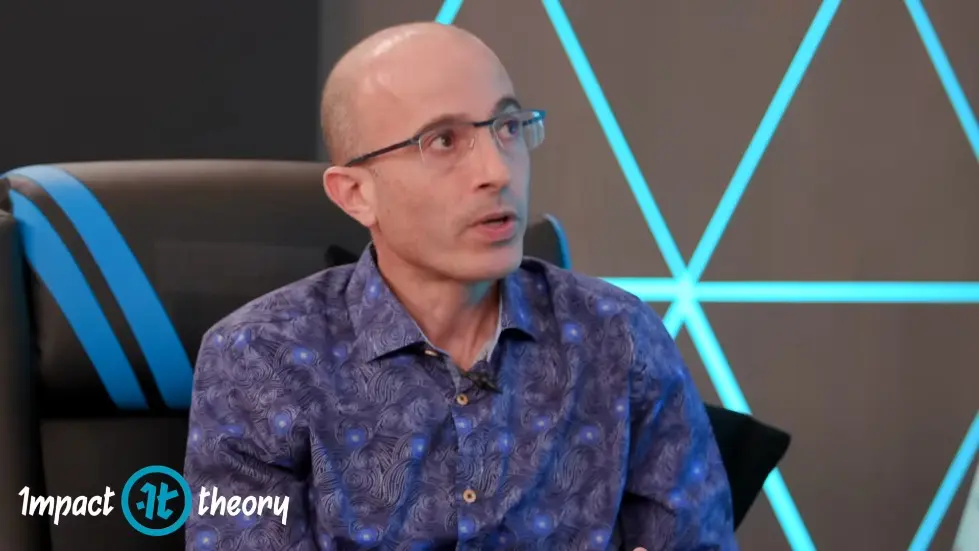
Dangers of Belief Systems
- Belief systems can lead to World War III.
- Weapons like AI and robotics make this even more dangerous.
- A belief system of beauty is needed to prevent this.
- Beauty is not as contagious as the will to power.
- Periods of peace and war have occurred throughout history.

Unnecessary Conflicts
- People fight over fantasies in their minds.
- Jerusalem is an example of an unnecessary conflict.
- Religious glasses create a different perception of reality.
- Sacred places are a place plus a story about the place.
- Conflicts often arise from opposite narratives.
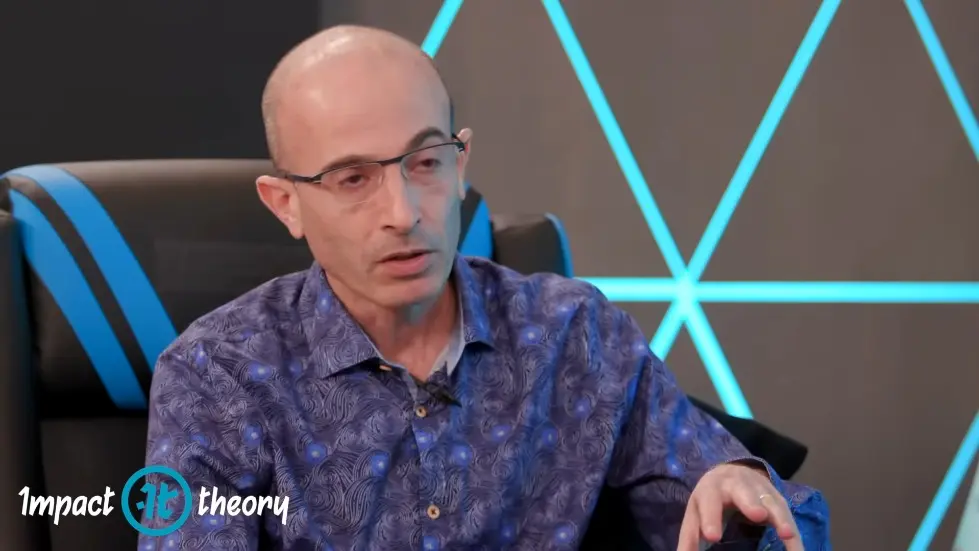
Common Ground
- Coming back to biology can create common ground.
- Organ of the body and biology can unite people.
- Opposite narratives have been prevalent throughout history.
- Religions like Christianity view the body as the source of bad things.
- Biologically, humans are the same and can relate to each other.
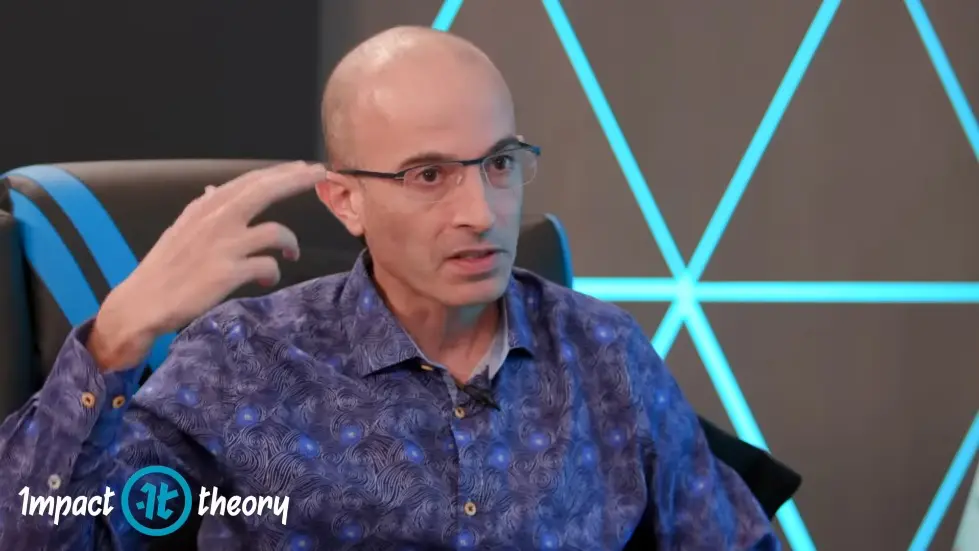
Mental Health Awareness
- Tom Billu is teaming up with Better Help for mental health awareness month.
- A video miniseries will be available on Spotify.
- The series will feature inspiring people in the world of mental health and personal development.
- Practical advice, powerful insights, and actionable steps will be shared.
- The body and mind are both important for mental health.
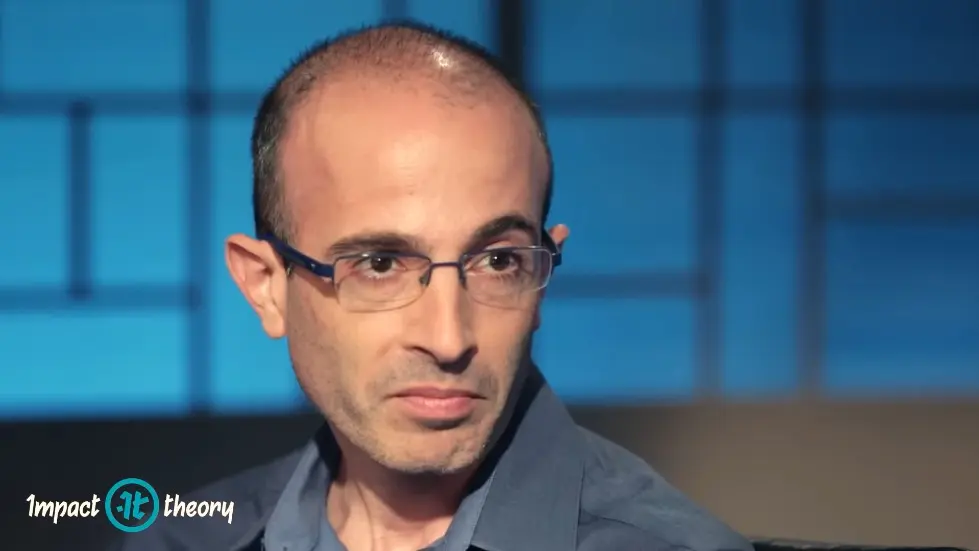
The Hackable Human
- Humans are now hackable animals.
- To hack a human being, you need a lot of data, especially biometric data, and a lot of computing power to make sense of all that data.
- The revolution in biotech and infotech has made it possible to create algorithms that understand humans better than they understand themselves.
- These algorithms can predict and manipulate human choices and desires, and eventually re-engineer or replace human systems.
- One of the dangers of this technology is that computers and AI may be able to replace humans in more and more tasks, pushing millions of humans out of the job market.
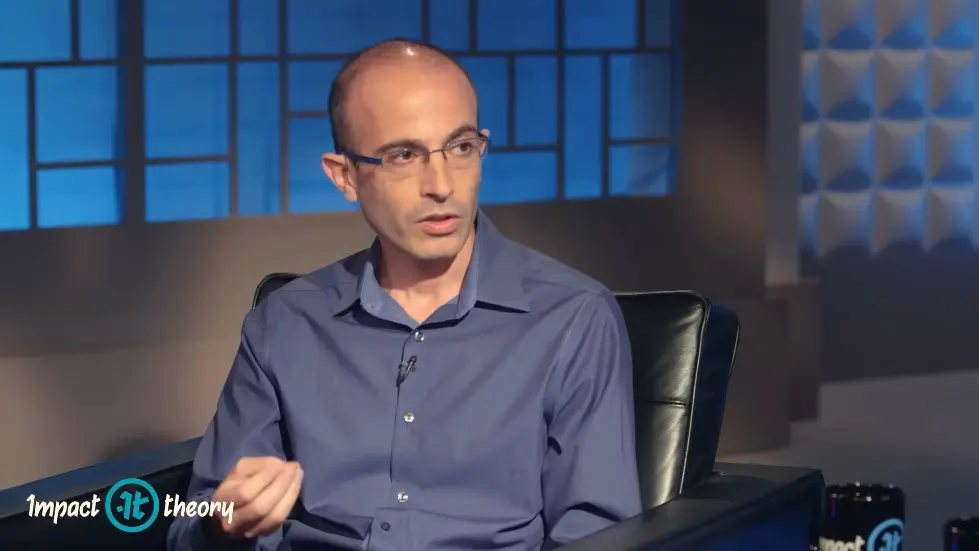
The Temptation of Hacking Humans
- The ability to hack humans has potentially tremendous positive consequences, such as providing the best healthcare in history.
- It is extremely tempting because it can mean that the poorest person on the planet can get better healthcare from their smartphone than the richest person today gets from the best healthcare available.
- However, this technology also has significant dangers, such as the potential for corporations and governments to manipulate human desires and choices.
- It is important to consider both the positive and negative consequences of this technology before continuing to research and develop it.
- There is a need to find a balance between the benefits and risks of this technology.
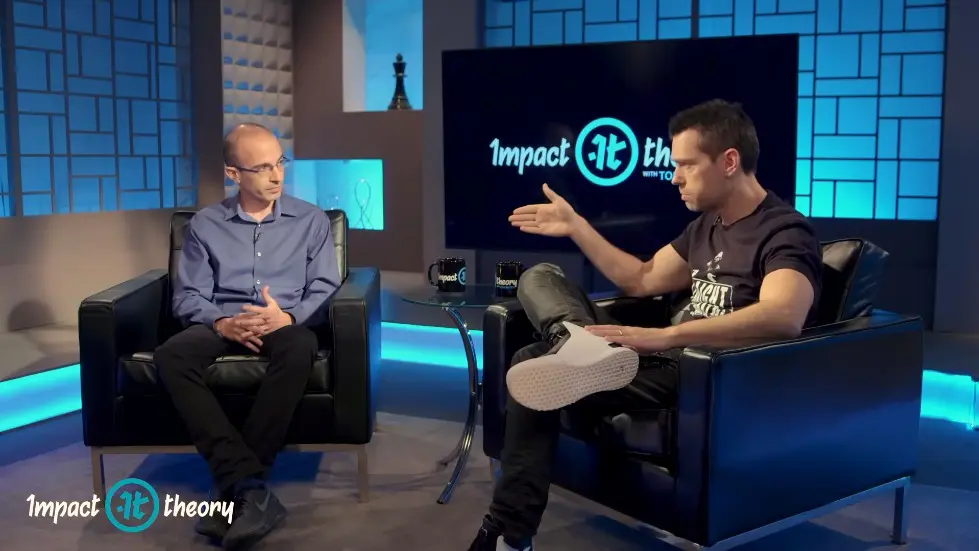
The Importance of Grounding Ourselves in Our Bodies
- One way to mitigate the dangers of technology is to ground ourselves more in our bodies.
- Technological advancements can become dangerous when they allow for the hacking of humans.
- Grounding ourselves in our bodies can help us to be more aware of our own desires and choices, and less susceptible to manipulation by external forces.
- It is important to find a balance between the benefits of technology and the need to stay grounded in our bodies.
- By doing so, we can better navigate the challenges of the 21st century.
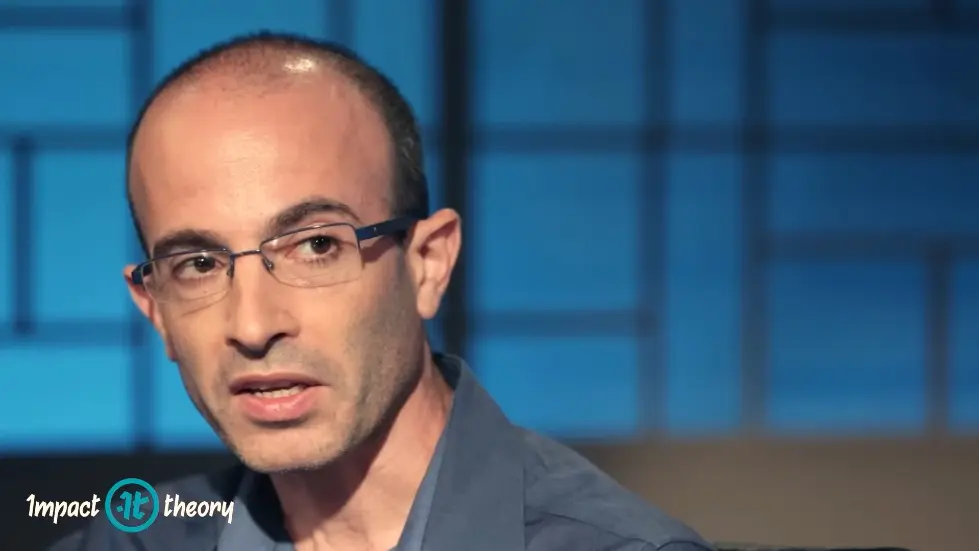
The Need for a New Narrative
- The challenges of the 21st century require a new narrative that can help us to navigate the complexities of our world.
- The old narratives of religion, nationalism, and consumerism are no longer sufficient to address the challenges we face.
- We need a new narrative that can help us to understand the interconnectedness of our world and the importance of cooperation and compassion.
- This new narrative must be grounded in science and reason, but also in empathy and a sense of shared humanity.
- By embracing this new narrative, we can create a better future for ourselves and for future generations.
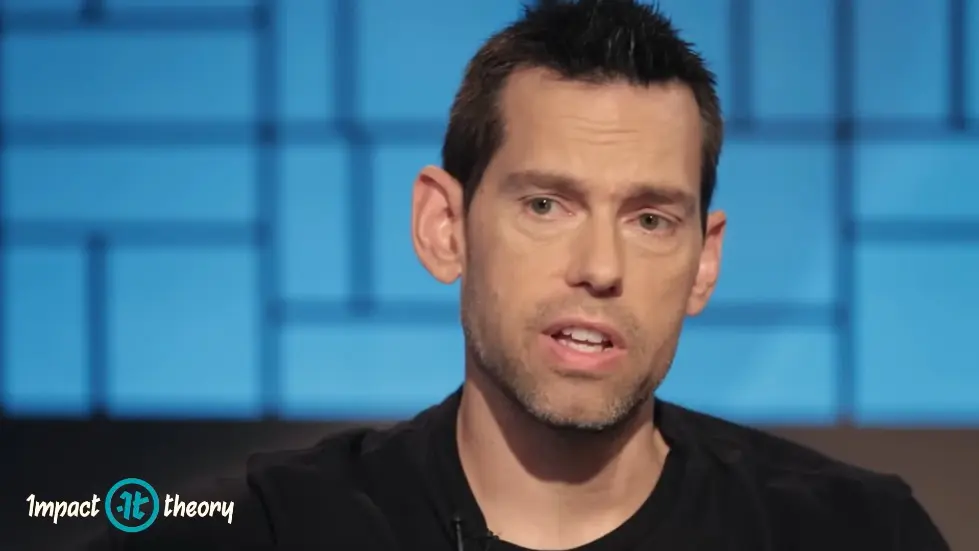
Lesson 1: The Importance of Self-Knowledge
- People know very little about themselves.
- Self-exploration is important for personal growth.
- Algorithms can know more about a person than they know about themselves.
- Algorithms can predict a person's sexual orientation with high accuracy.
- Knowing personal information can have implications depending on the context and location.
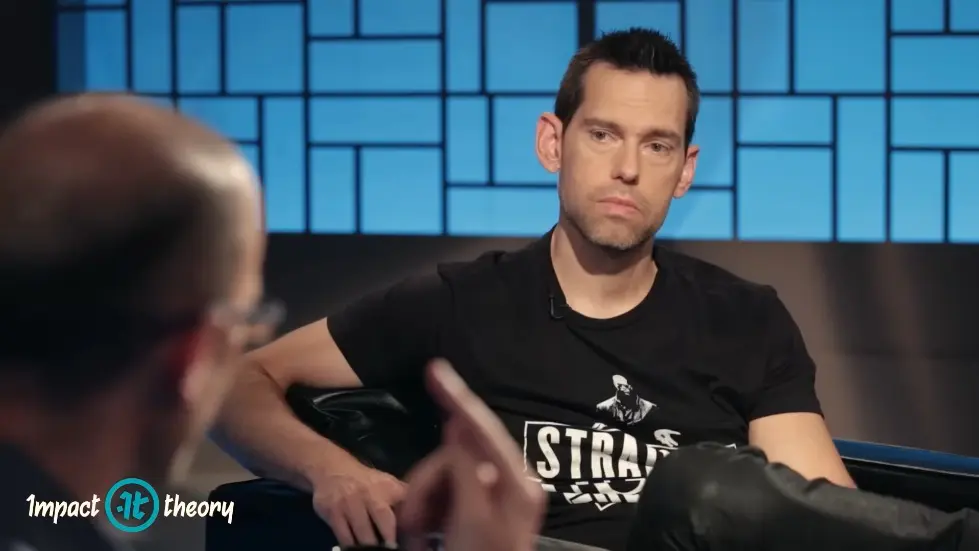
Lesson 2: The Dangers of Genetic Engineering
- Genetic engineering can lead to a new class of humans.
- Genetic engineering can create inequality and discrimination.
- Genetic engineering can lead to a loss of diversity.
- Genetic engineering can have unintended consequences.
- Genetic engineering can be used for military purposes.
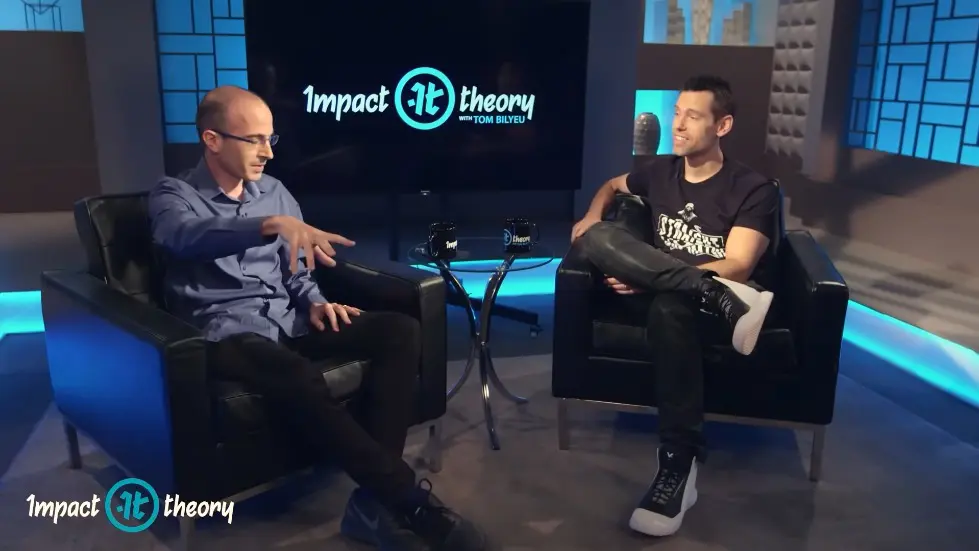
Lesson 3: The Threat of Artificial Intelligence
- Artificial intelligence can replace human jobs.
- Artificial intelligence can make decisions that humans cannot understand.
- Artificial intelligence can be biased and discriminatory.
- Artificial intelligence can be used for surveillance and control.
- Artificial intelligence can be used for military purposes.
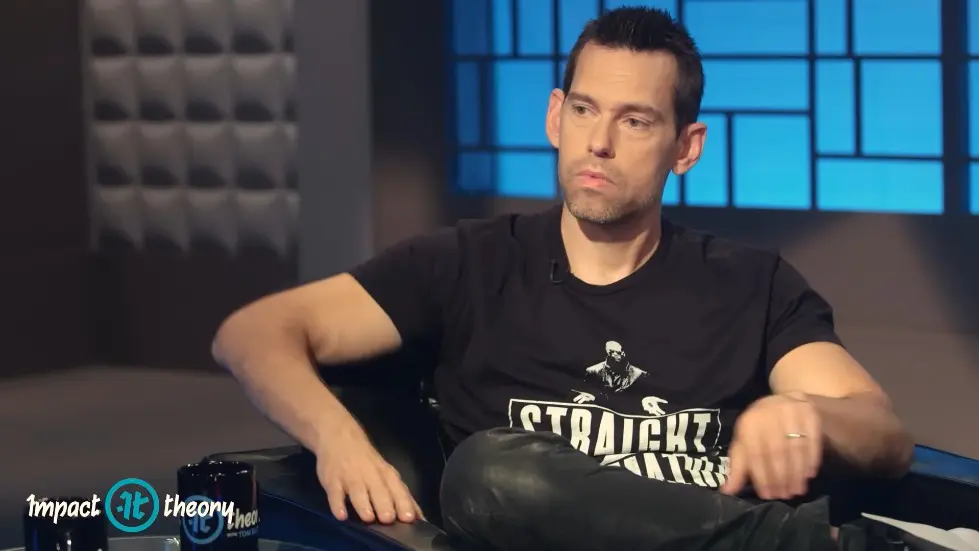
Lesson 4: The Importance of Resilience
- Resilience is the ability to adapt to change.
- Resilience is important for survival in the 21st century.
- Resilience can be developed through education and training.
- Resilience can be developed through exposure to diverse experiences.
- Resilience can be developed through mindfulness and meditation.
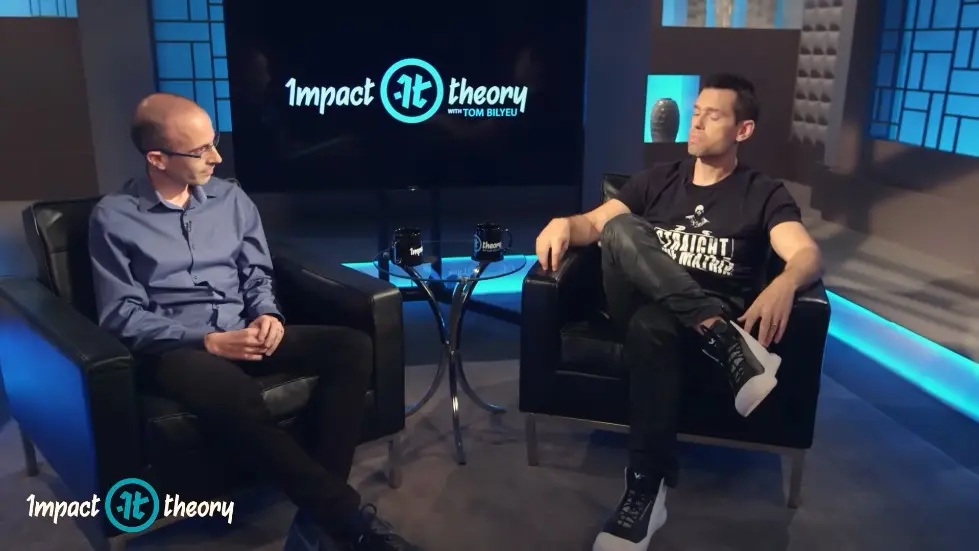
The Implications of Outsourcing Self-Discovery
- Outsourcing self-discovery to an algorithm can be useful for finding one's passion in life.
- An algorithm can use manipulative techniques to move a person in a desired direction.
- An example is an algorithm that chooses music based on a person's biometrics and current mental state.
- The algorithm can follow different instructions, such as uplifting or connecting to sadness and depression.
- Art plays on the human biochemical system, and an algorithm can know this instrument better than any human artist.
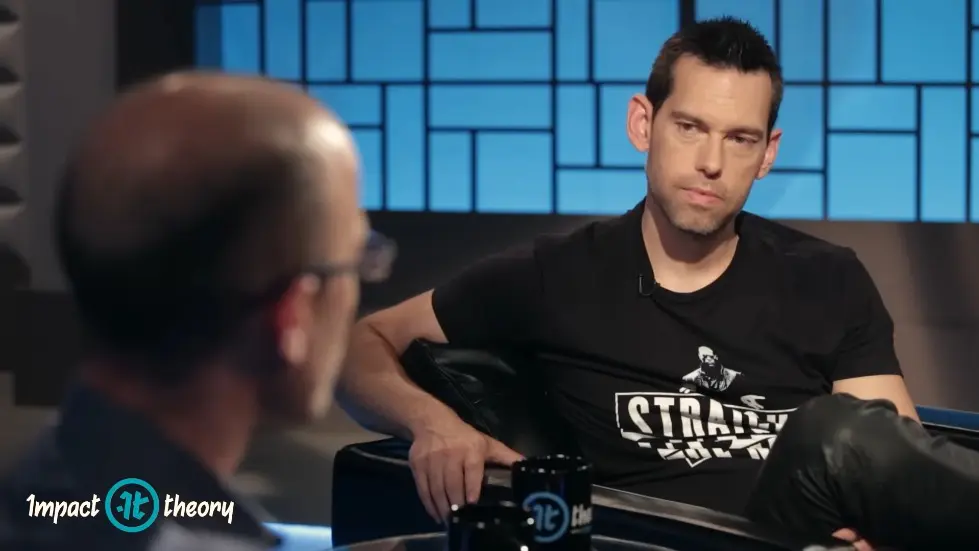
The Dangers of Genetic Engineering
- Genetic engineering can lead to a new class of superhumans and a widening gap between the rich and poor.
- It can also lead to a loss of diversity and a decrease in resilience to environmental changes.
- Genetic engineering can be used for military purposes, such as creating soldiers with enhanced abilities.
- It raises ethical questions about the right to modify human nature and the potential for discrimination against those who are not genetically enhanced.
- There is a need for global cooperation and regulation to prevent the misuse of genetic engineering.
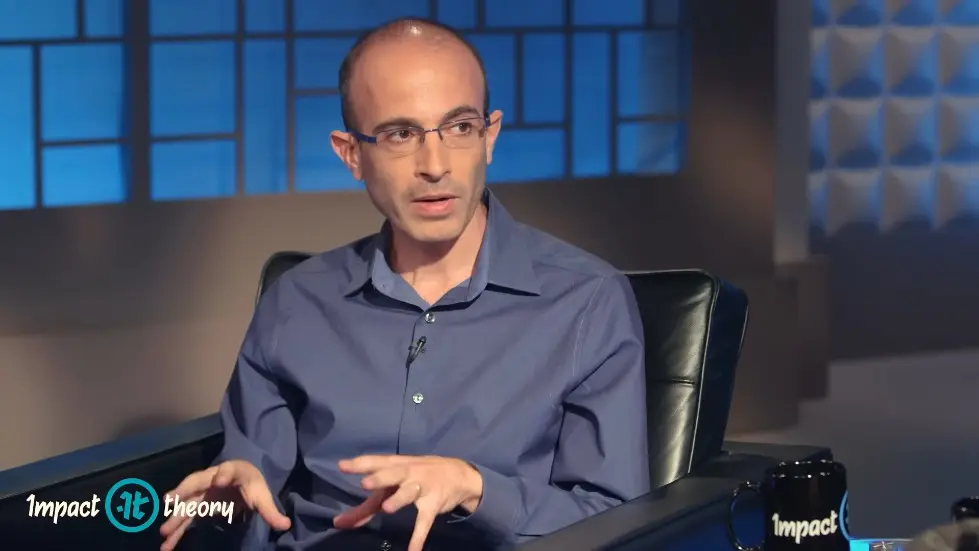
The Rise of Artificial Intelligence
- Artificial intelligence is becoming more advanced and can outperform humans in certain tasks.
- It can lead to job displacement and a widening gap between the skilled and unskilled workforce.
- AI can also be used for surveillance and control, leading to a loss of privacy and freedom.
- There is a need for ethical guidelines and regulation to prevent the misuse of AI.
- AI can also be used for positive purposes, such as improving healthcare and education.
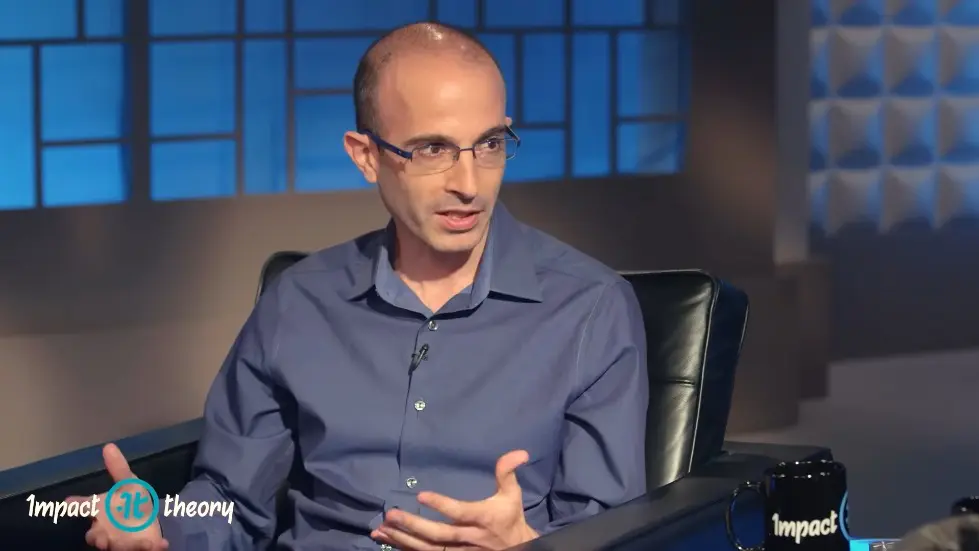
The Importance of Mental Resilience
- Mental resilience is the ability to adapt to change and overcome adversity.
- It is becoming increasingly important in a rapidly changing world.
- Mental resilience can be developed through practices such as meditation and mindfulness.
- It is important to recognize the limitations of the human mind and the need for mental self-care.
- Mental resilience can help individuals and societies to thrive in the face of challenges.
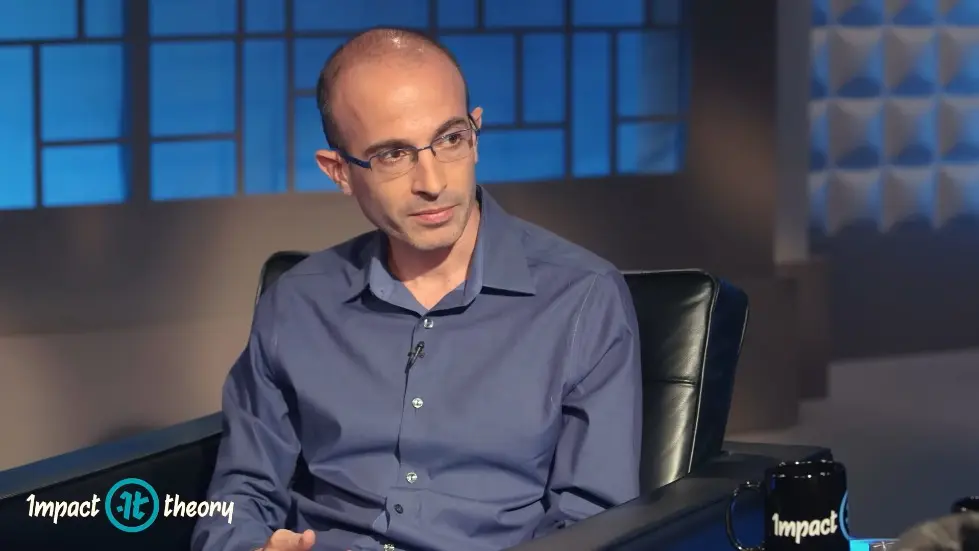
Dangers and Temptations of Genetic Engineering and Artificial Intelligence
- Outsourcing diagnosis through algorithms with biometric sensors can detect health problems early on.
- Privacy and health are in conflict, and the battle between them is one of the biggest in the 21st century.
- Most people are willing to give up privacy for better healthcare.
- We need to create a system that gives us good healthcare without compromising our privacy.
- Reaching a balance between privacy and healthcare is a big political question.
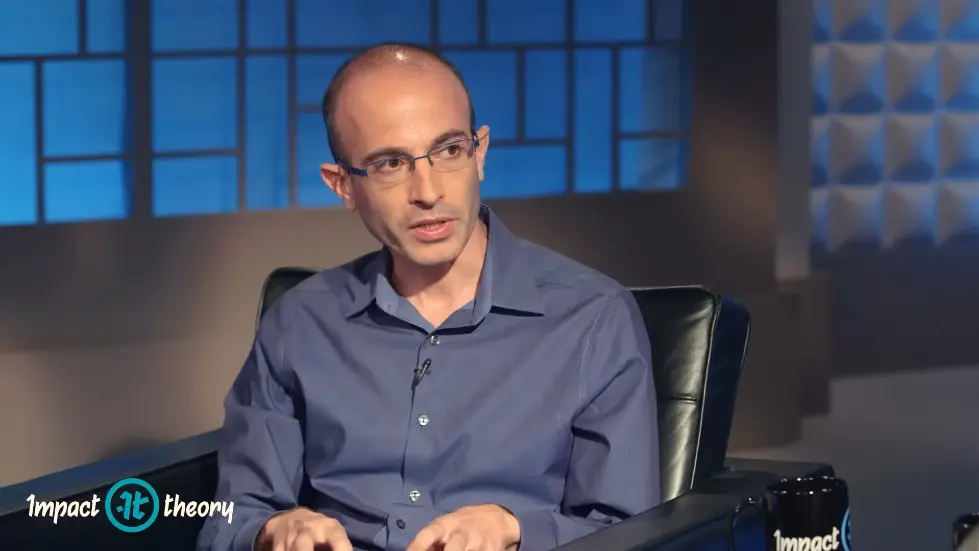
The Will to Power and the Culture War
- Humans have a biological nature that leads to the will to power.
- The will to power can manifest beautifully or in an ugly, petty way.
- Humans need to be chased by a lion or have an extrinsic real danger to be motivated to protect.
- The desire to have power coupled with nothing real to fight against puts humans in a weird situation.
- The will to power can manifest in a pretty ugly way.
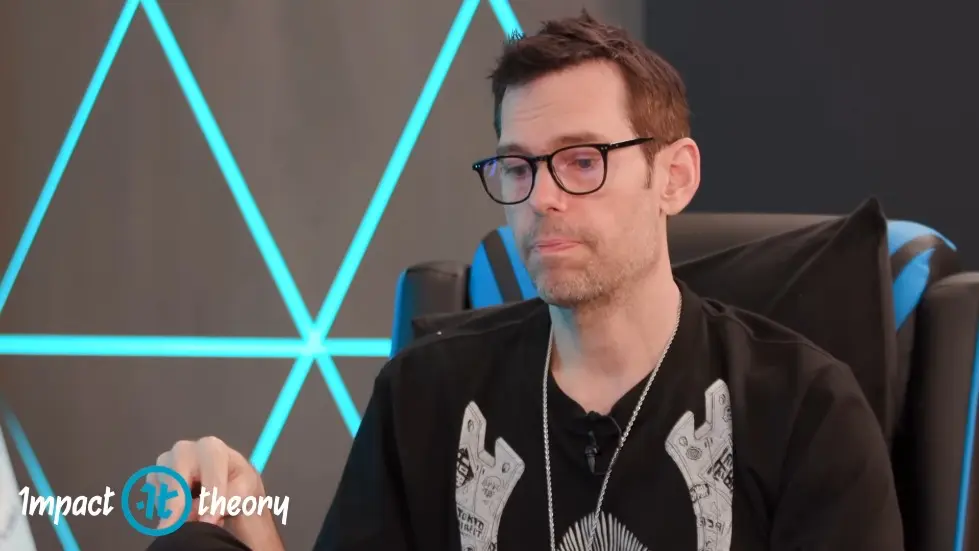
The Importance of Education in the 21st Century
- Education is more important than ever in the 21st century.
- People need to learn how to learn because the world is changing so fast.
- People need to learn how to deal with change and uncertainty.
- People need to learn how to deal with failure because it is inevitable in a fast-changing world.
- People need to learn how to deal with other people because the world is becoming more interconnected.
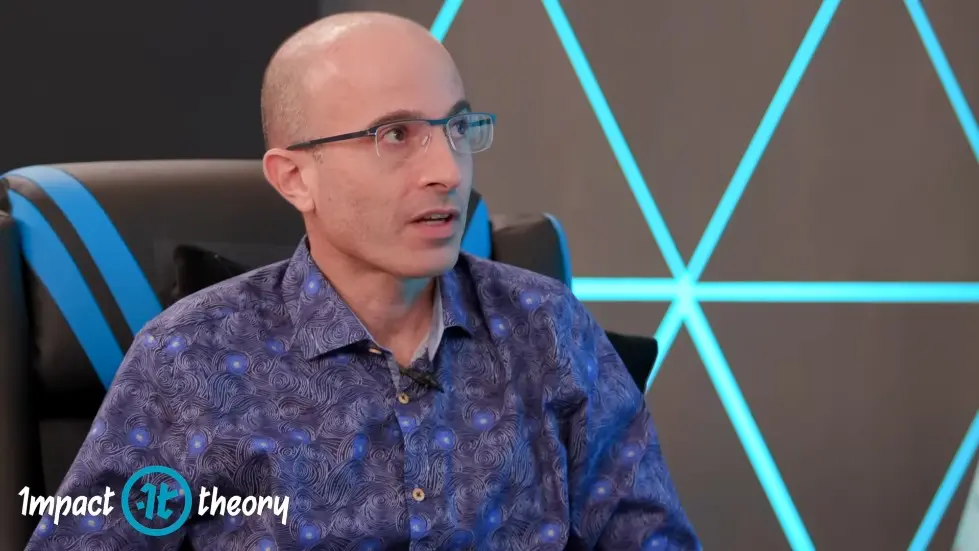
The Importance of Empathy in the 21st Century
- Empathy is more important than ever in the 21st century.
- Empathy is the ability to understand and share the feelings of others.
- Empathy is necessary for dealing with other people in a world that is becoming more interconnected.
- Empathy is necessary for dealing with change and uncertainty because it helps people understand how others are feeling.
- Empathy is necessary for dealing with failure because it helps people understand how others have dealt with failure.
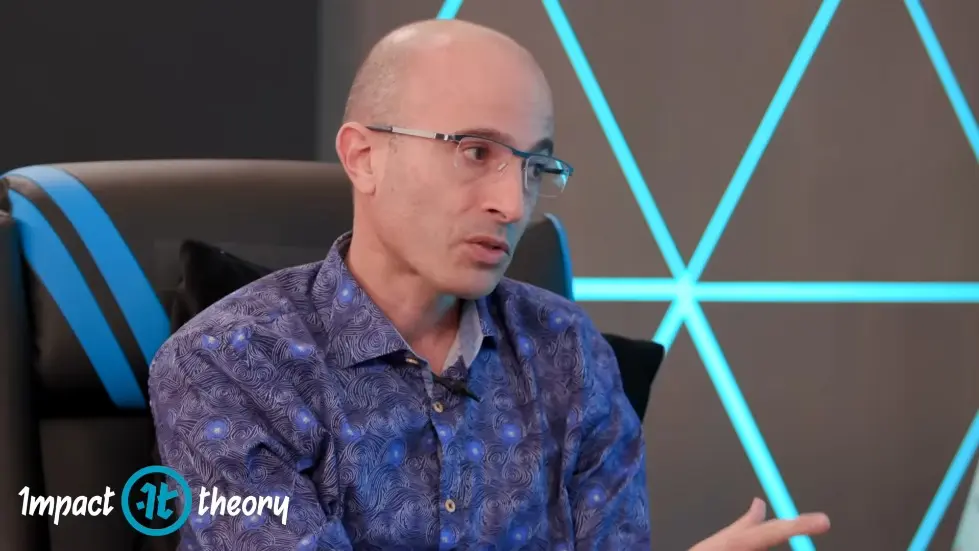
The Dangers of Nationalism and Tribalism
- Politicians use divisive issues to gain power, rather than focusing on healing the community.
- Issues that are politicized become big ideological battles, making them harder to solve.
- Nationalism, when understood correctly, is a force for good in the world.
- The basic message of nationalism is the ability to care about people you don't know.
- Politicians who describe themselves as nationalists are tearing apart the national community instead of strengthening it.
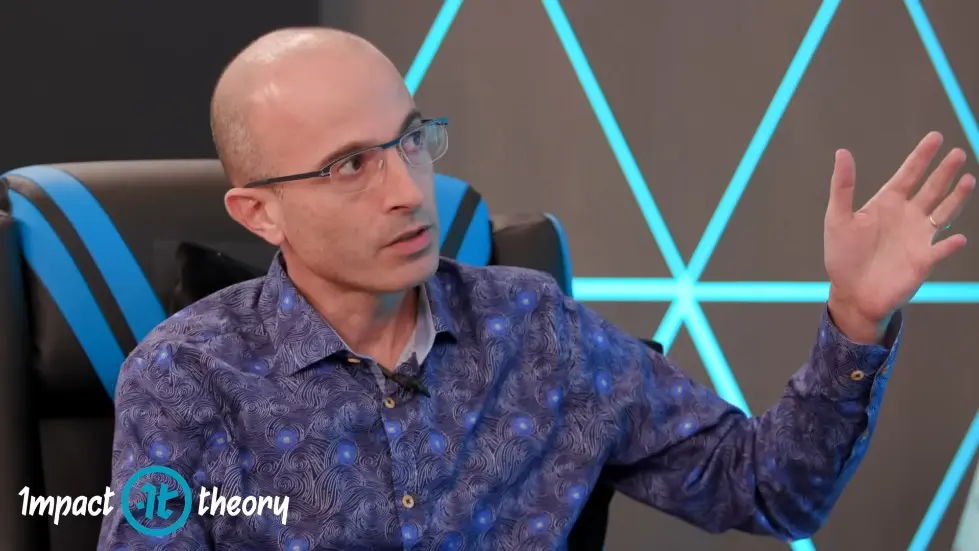
The Importance of Education and Lifelong Learning
- Education is the most important thing that people can do to prepare for the future.
- People need to learn how to learn, because the world is changing so quickly.
- People need to be able to reinvent themselves throughout their lives.
- People need to learn how to deal with change and uncertainty.
- People need to learn how to think critically and independently.
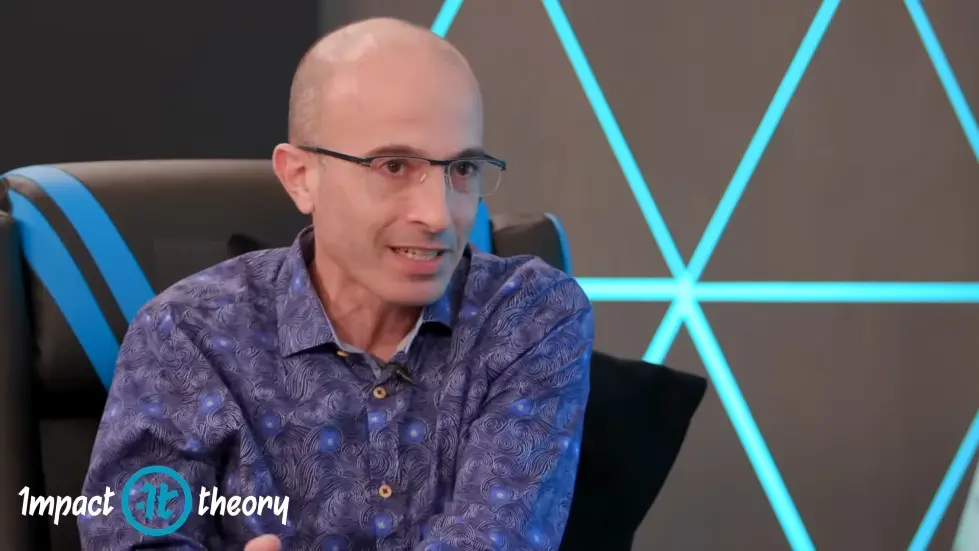
The Risks of Genetic Engineering and Artificial Intelligence
- Genetic engineering and artificial intelligence have the potential to change the course of human evolution.
- These technologies could create new classes of people, with vastly different abilities and opportunities.
- These technologies could also create new forms of inequality and discrimination.
- These technologies could be used to create new weapons of mass destruction.
- These technologies could also be used to create new forms of surveillance and control.
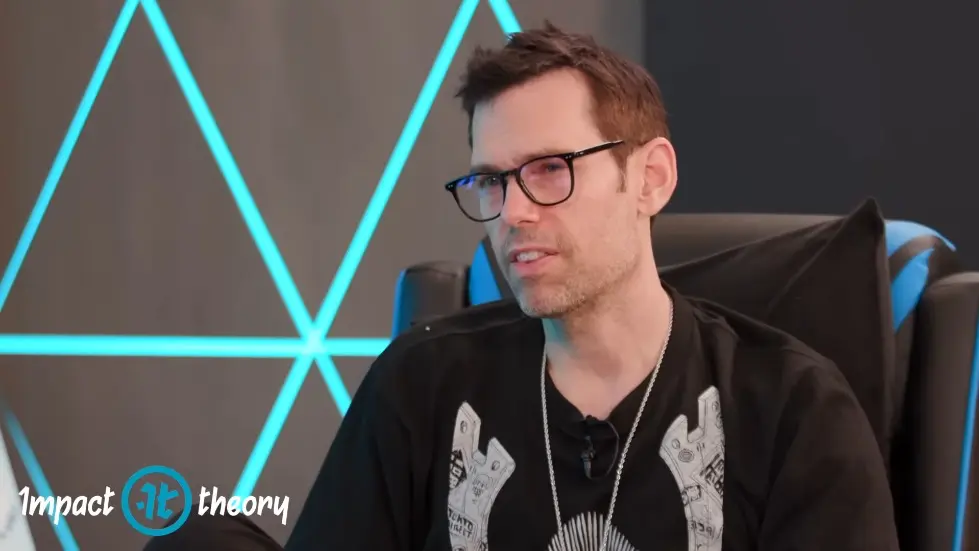
The Need for Global Cooperation and Responsibility
- The biggest challenges facing humanity today are global in nature.
- These challenges include climate change, nuclear war, and pandemics.
- No country can solve these problems alone.
- Global cooperation is necessary to address these challenges.
- People need to take responsibility for the future of humanity, rather than leaving it to politicians and corporations.
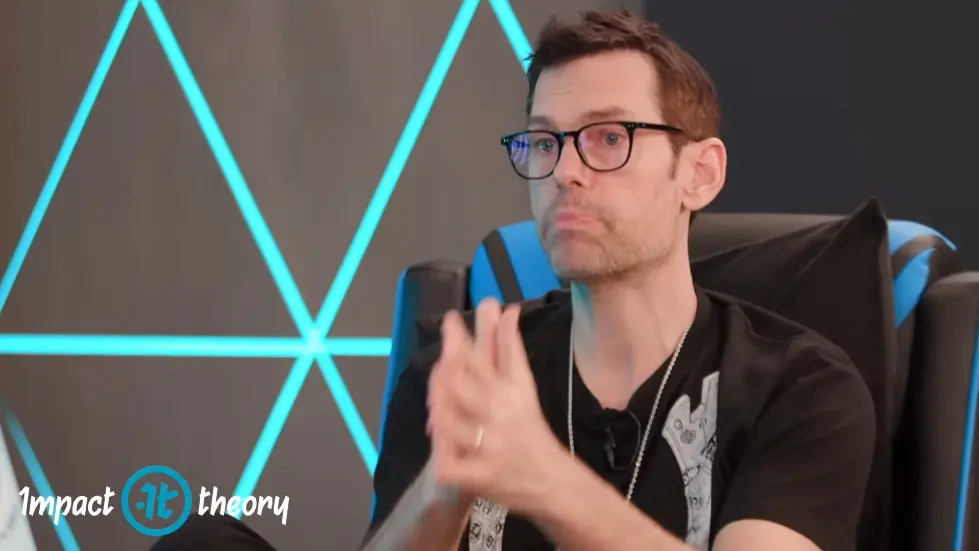
The Dangers of Social Media
- Human biology and social media create a dangerous positive feedback loop.
- Information is coming at us so fast that it's hard to digest.
- People are easily swayed by the certainty of righteous indignation.
- People are told exactly how to feel about something very concrete.
- People are encouraged to hate others for their beliefs or actions.

The Positive Feedback Loop of Conflict
- People are racing away from each other in a positive feedback loop.
- The only way to come back to the middle is through enough suffering.
- Wars prove that after a while, people don't want to fight anymore.
- Compromise becomes possible after seeing too much death and destruction.
- The third way is to heal people and bring them back together.

The Long-Term Process of History
- Humans find ways to trust more and more strangers and come together into larger groups.
- Humans have developed trust even though evolutionarily it makes no sense.
- The last few decades have been the most peaceful era in human history.
- It's become unacceptable for one country to invade and conquer its neighbors.
- State budgets reflect a decrease in military spending.
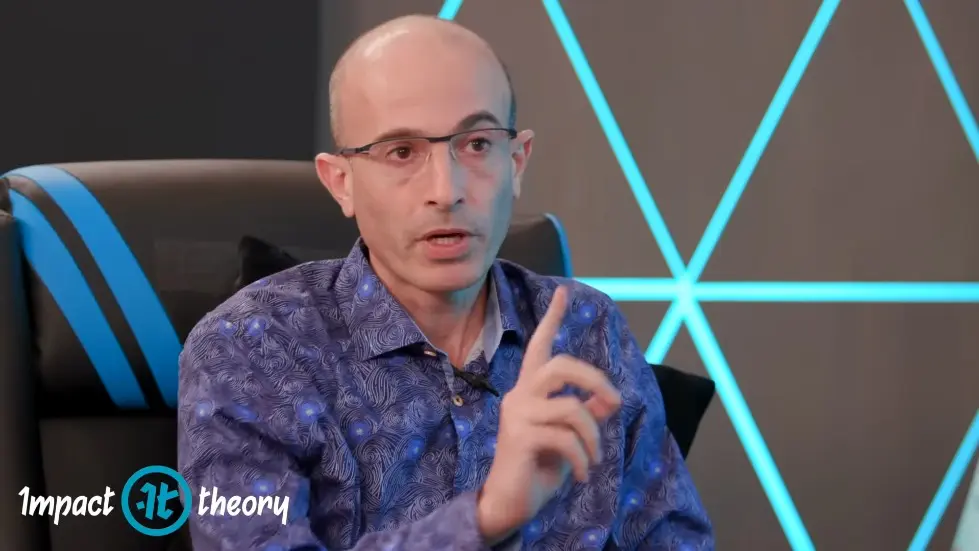
The Future of Technology
- Genetic engineering and artificial intelligence pose significant dangers.
- Humans may lose control over their own evolution.
- The metaverse may lead to a loss of privacy and individuality.
- Technology can be used for good or bad, depending on how it's developed and used.
- Humans need to be proactive in shaping the future of technology.

The Importance of Building Good Institutions
- The average expenditure of governments on military is about 6 percent.
- Countries spend more on education, healthcare, and welfare than on their military.
- Good institutions built on a national and international level have provided more peace than in any previous era.
- The Russian invasion of Ukraine endangers the biggest achievement of humanity, which is the era of relative peace.
- If Putin is allowed to get away with what he's trying to do in Ukraine, defense budgets all over the world will skyrocket.
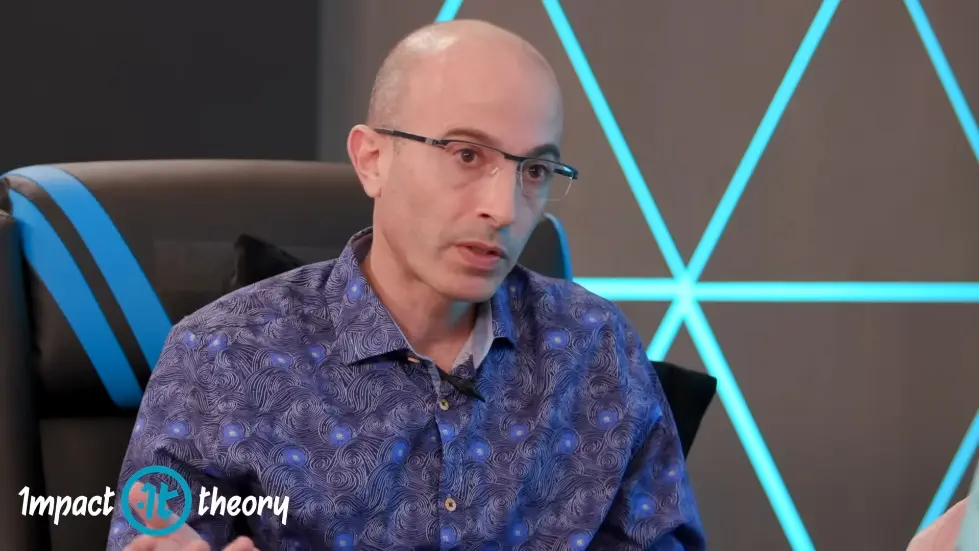
The Danger of Breaking Taboos
- Putin is breaking the biggest taboo in the international system, which is invading another country and conquering it just because you're stronger.
- If Putin gets away with it, the laws of the school will change, and everybody will know that this can happen.
- If people intervene and the bully is stopped, the norm actually gets strengthened.
- Dictators and regimes all over the world are watching to see what will happen in Ukraine.
- The Ukrainians themselves are fighting more bravely and efficiently than anybody could have imagined.

The Importance of Unity and Resilience
- Ukraine is a very new country made of different ethnic groups.
- Under the most intense kind of disinformation campaign coming from Russia, Ukraine has remained united.
- The Russians completely failed in their attempt to divide the Ukrainian society and turn Ukrainian speakers and Russian speakers against each other.
- The Ukrainians actually came together and fought against the Russian invasion.
- The landscape of Ukraine is Jewish, coming from a Russian-speaking family.
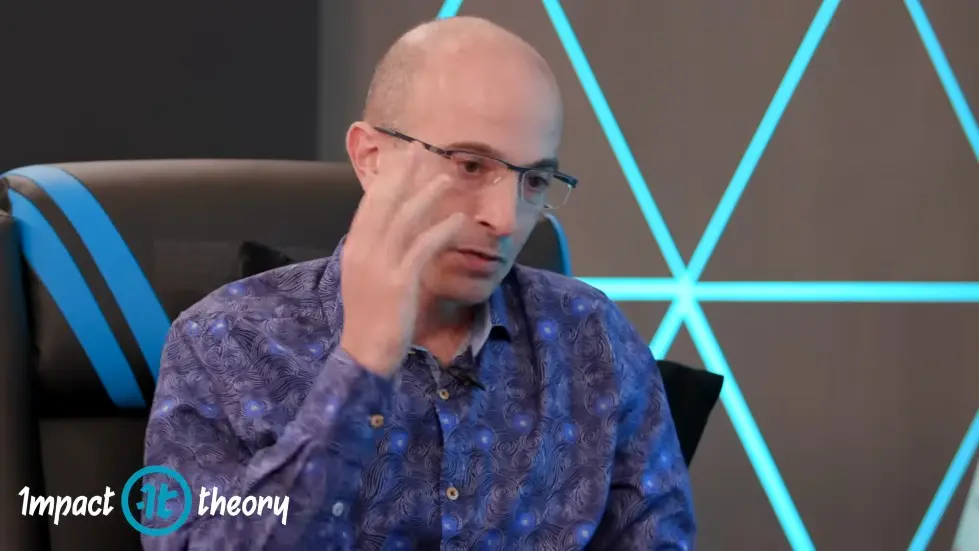
The Need for Global Cooperation
- The challenges of the 21st century, such as climate change, nuclear war, and pandemics, require global cooperation.
- The current international system is not equipped to deal with these challenges.
- We need to build a new global system based on cooperation and shared values.
- We need to move beyond nationalism and focus on the common challenges that we all face.
- We need to recognize that we are all in this together and that our future depends on our ability to work together.
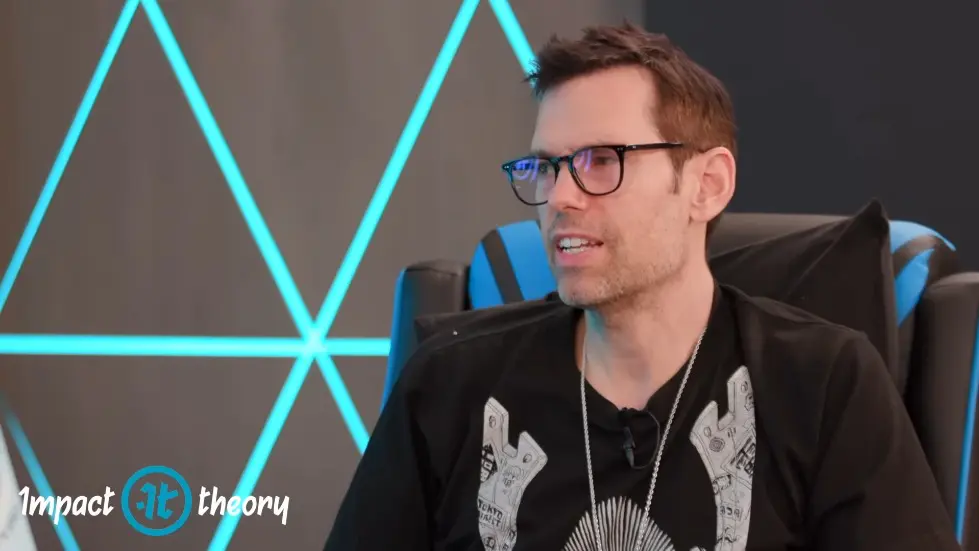
The Danger of Nationalism
- Nationalism doesn't mean hating minorities or neighbors, it means people coming together.
- It's important to learn from examples of nationalism that bring people together, like the story of Ukrainian-Israeli astronaut Ilan Ramon.
- There is a rise of extreme radical left and right voices against the government and state.
- The Deep State is the system that takes care of sewage and drinking water, and it's the job of the government to maintain it.
- Humanity has achieved amazing things, but people take them for granted and neglect them.
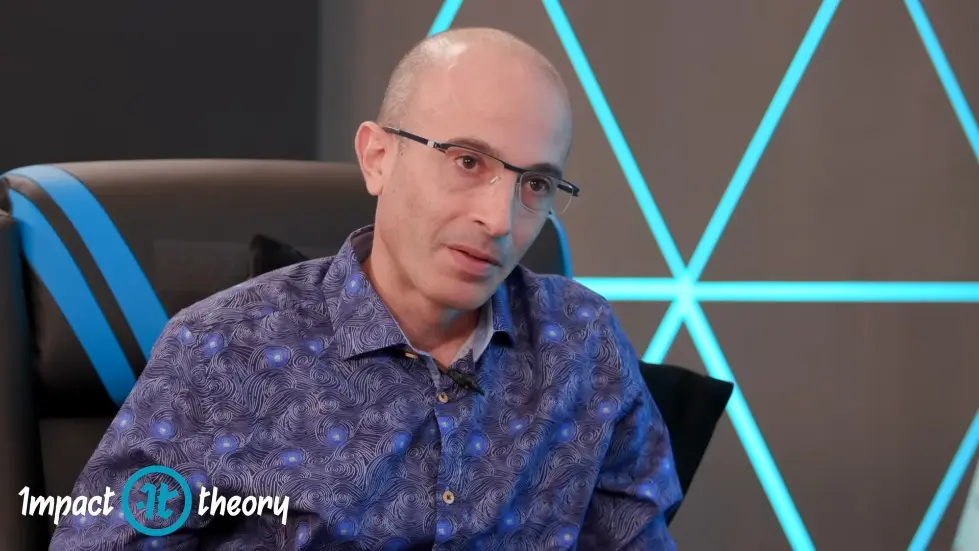
The Precipice of History
- Humanity has climbed up from the jungle of violence, disease, and poverty, but we are still at the edge of the precipice.
- We can fall down very quickly within a few years if we don't realize the dangers we face.
- People need to reflect deeply on the stories they tell themselves and the dominant stories of history.
- Humans became the most dominant predator because of their ability to organize flexibly in groups through stories.
- Fascism, communism, and liberalism are dominant stories that people have been fighting over throughout history.
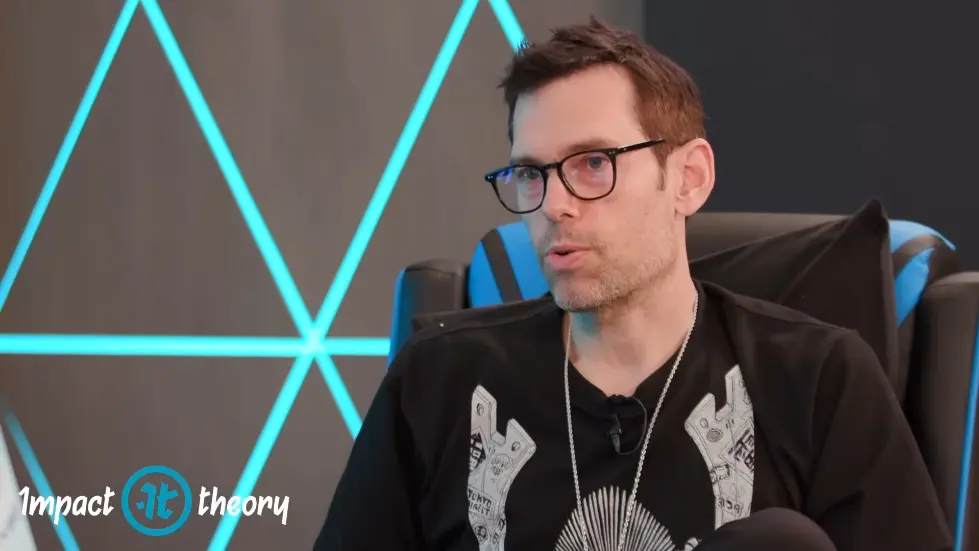
The Dangers of Genetic Engineering
- Genetic engineering can lead to a new kind of inequality, where some people are genetically enhanced and others are not.
- It can also lead to a new kind of discrimination, where people are judged based on their genetic makeup.
- Genetic engineering can have unintended consequences, like creating new diseases or harming the environment.
- It can also lead to a loss of diversity, as people try to create a perfect human being.
- There needs to be a global conversation about the ethics of genetic engineering and its potential consequences.
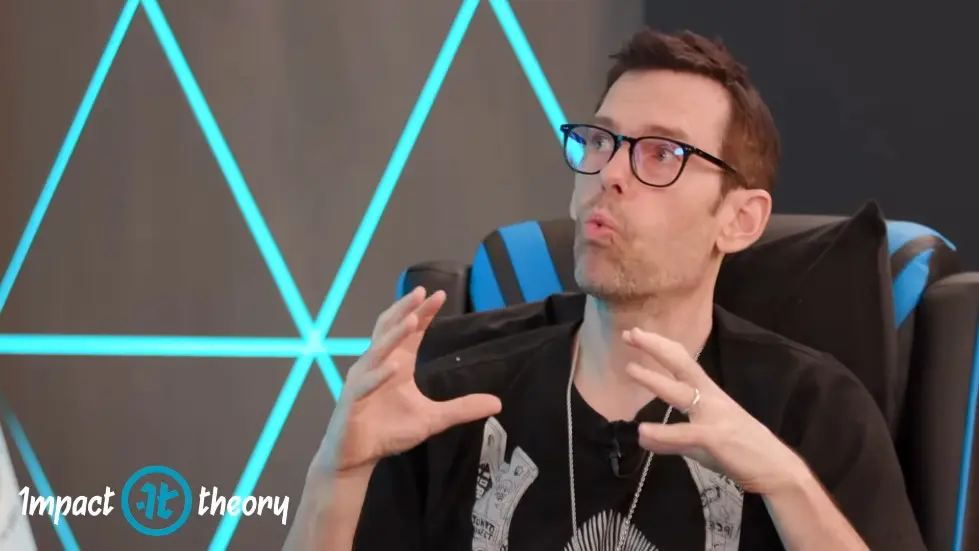
The Rise of Artificial Intelligence
- Artificial intelligence has the potential to revolutionize many industries and improve people's lives.
- It also has the potential to create massive unemployment and widen the gap between the rich and poor.
- AI can also be used to manipulate people and create new forms of propaganda and surveillance.
- There needs to be a global conversation about the ethics of AI and how to ensure that it benefits everyone, not just a few.
- Humans need to focus on developing emotional and social intelligence, which machines cannot replicate.
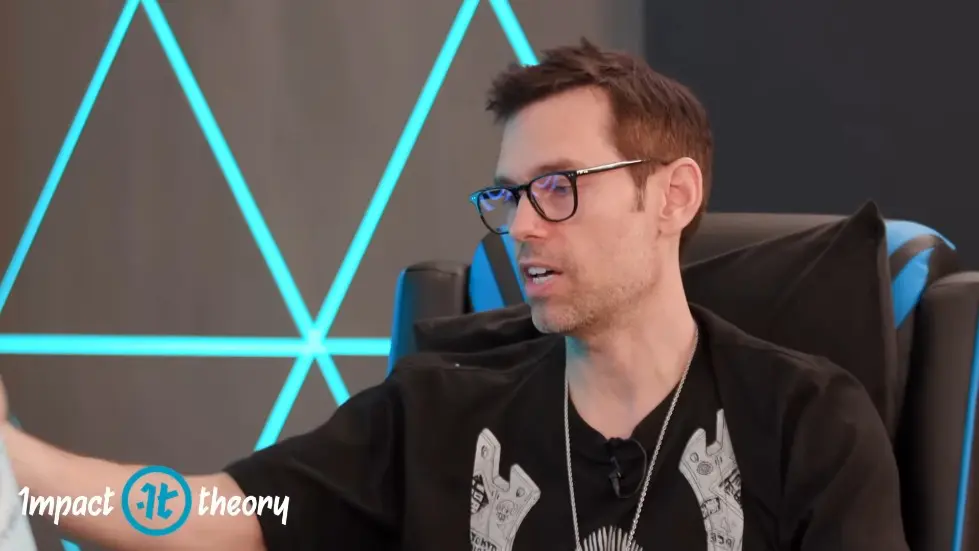
The Importance of Narrative
- The human mind is designed to simplify the complex world through narrative.
- People need to take responsibility for telling themselves a narrative that brings people back together.
- Identity is closely connected to all other people in the world and even beyond to other animals.
- National stories are important but limited because nations have only been around for a few thousand years.
- Each person is made up of bits and pieces from all over the world and from all of history.

The Potential of AI and Gene Editing
- AI is already being used in businesses to find audiences and design products.
- Humans are still largely responsible for designing products, but AI is being used to augment their abilities.
- Gene editing has the potential to destroy all of humanity.
- These technologies are on the precipice of changing the world.
- It is important to consider the potential consequences of these technologies before implementing them.
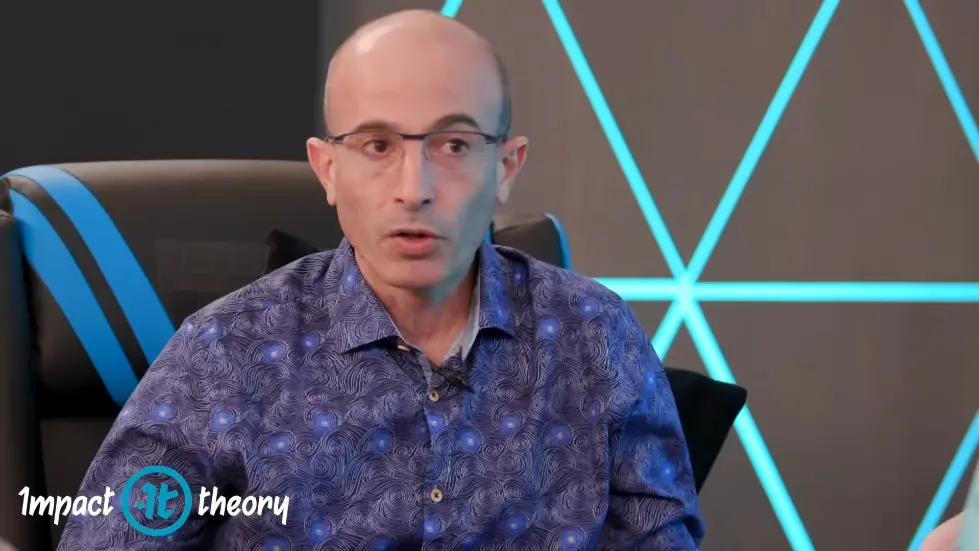
The Collective vs. the Individual
- The collective is a reflection of the individual.
- Even if collective change is desired, it must spring forth from the individual.
- Narrative is important in shaping individual and collective identity.
- Individuals have the power to sway the collective, as seen in the example of Nelson Mandela.
- The human mind is not designed to disentangle the individual from the collective.
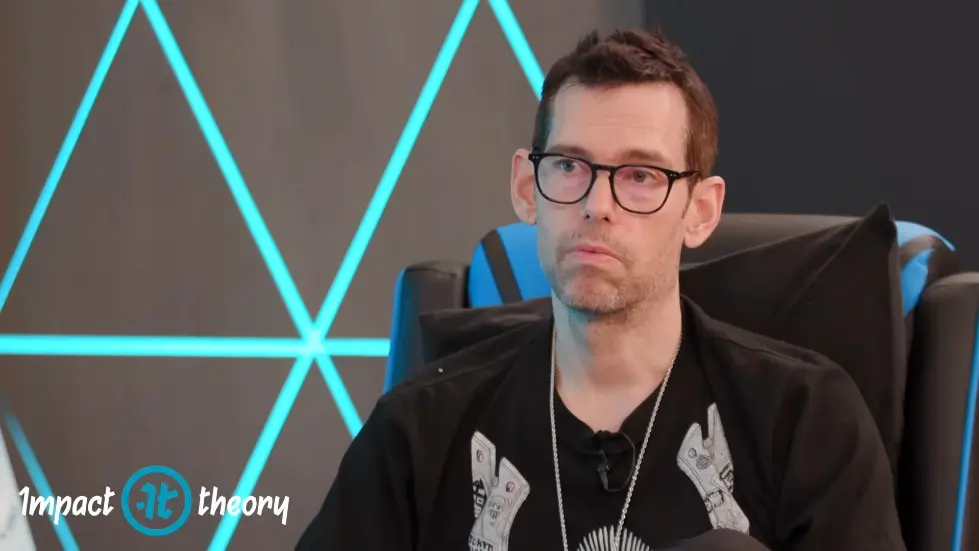
The Complexity of Identity
- Identity is made up of bits and pieces from all over the world and from all of history.
- Basic emotions, such as fear of monsters, are a result of millions of years of evolution.
- Identity is closely connected to other animals, not just other humans.
- National stories are important but limited in their ability to explain identity.
- Identity is a complex and multifaceted concept that cannot be fully understood through any one lens.
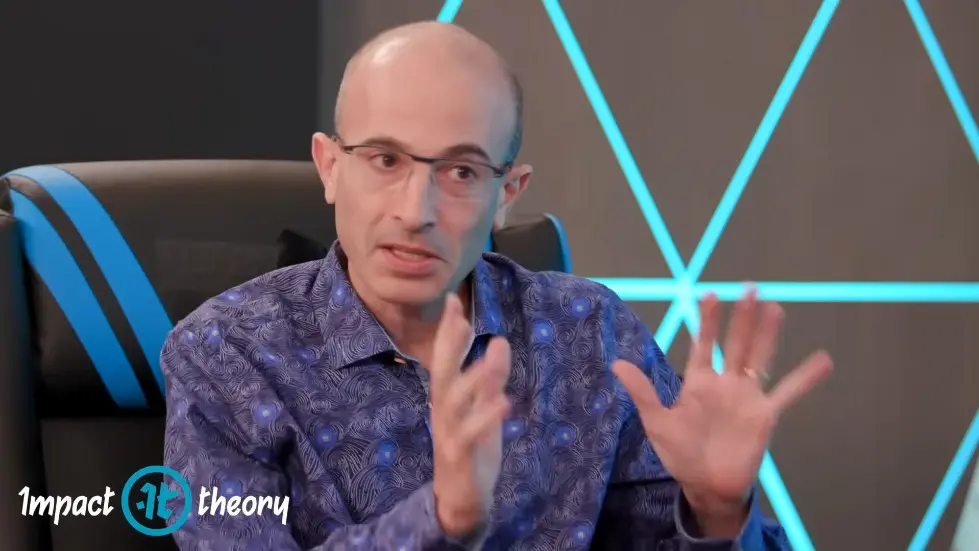
The Importance of Connection
- All mammals and birds have a close connection between mother and offspring.
- Mammals eat their mother, meaning that the mother feeds the offspring from her body.
- The connection between mother and child is essential for survival.
- This connection is something that connects all of humanity.
- We face collective challenges that threaten our existence, including genetic engineering and AI.
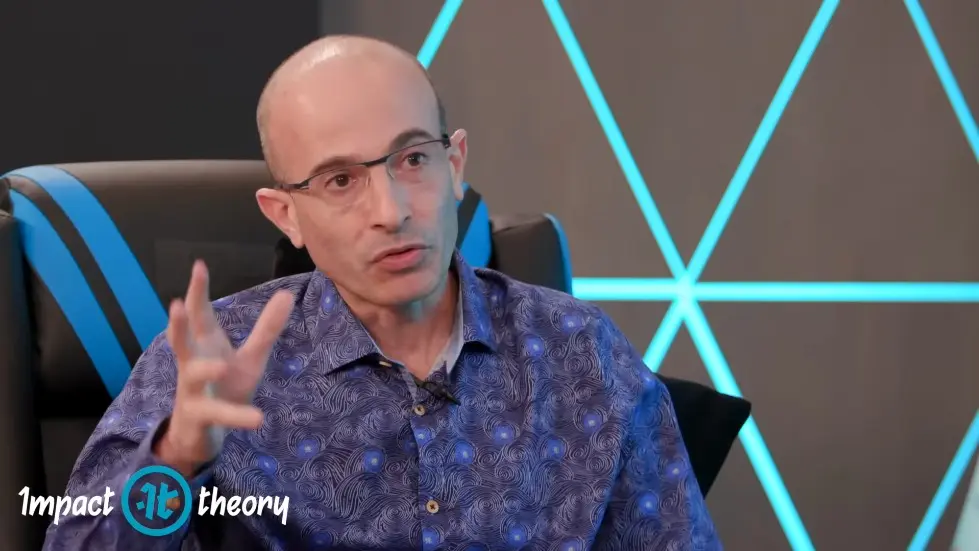
The Dangers of Genetic Engineering
- Genetic engineering is an existential danger to all of us.
- Corporations, armies, and governments could start changing the human body to develop and upgrade the human qualities they need.
- They might create highly intelligent and disciplined humans who lack compassion and spiritual depth.
- This change could last for generations and create a new human species.
- Hitler and Stalin also tried to re-engineer humans, but they were limited by time.
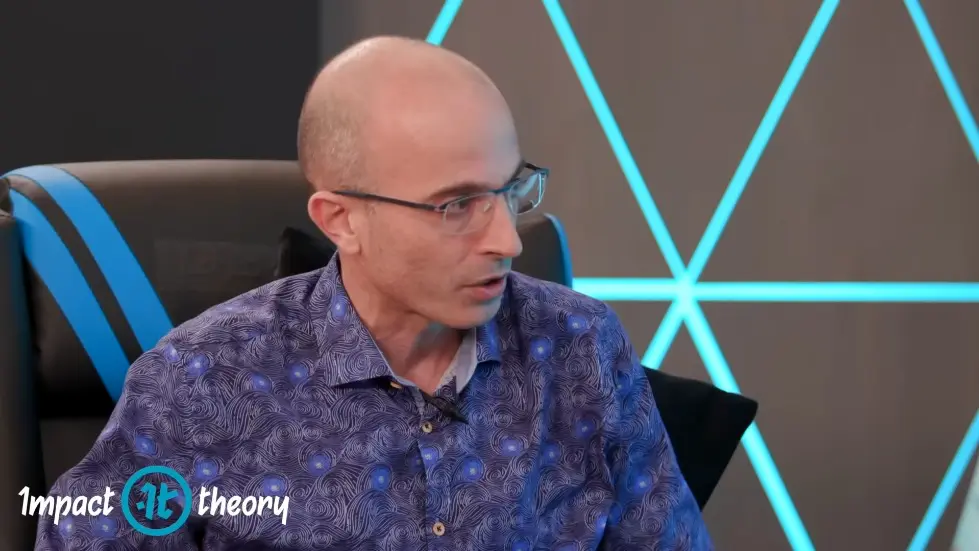
The Power of Stories
- Stories like money control all of our lives and give us a common code by which to live.
- People can take control of the story they tell themselves about themselves.
- It is one of the most important stories.
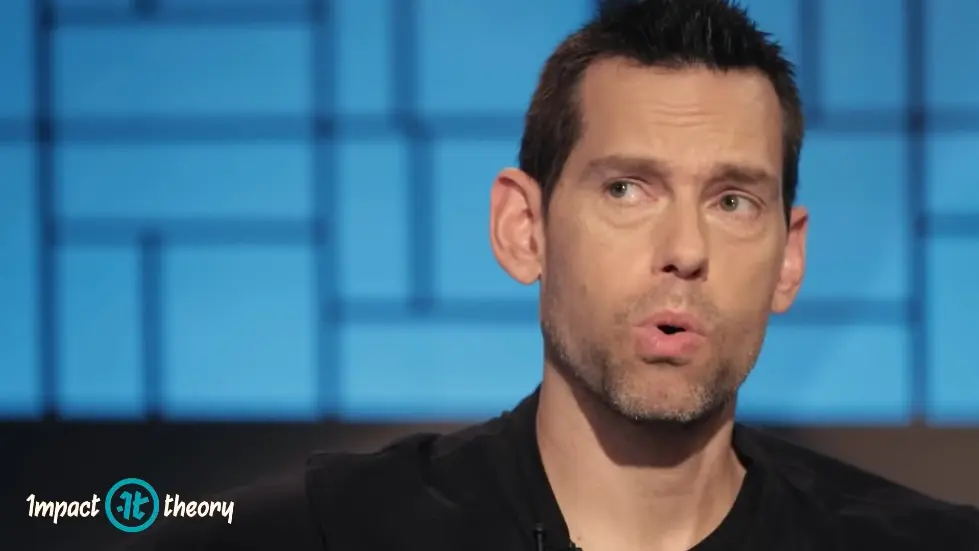
The Importance of Education
- Education is essential for the survival of humanity.
- It is the key to solving collective challenges.
- Education should focus on developing critical thinking and emotional intelligence.
- It should also teach people how to adapt to change and learn new things throughout their lives.
- Education should be accessible to everyone, regardless of their background or financial situation.
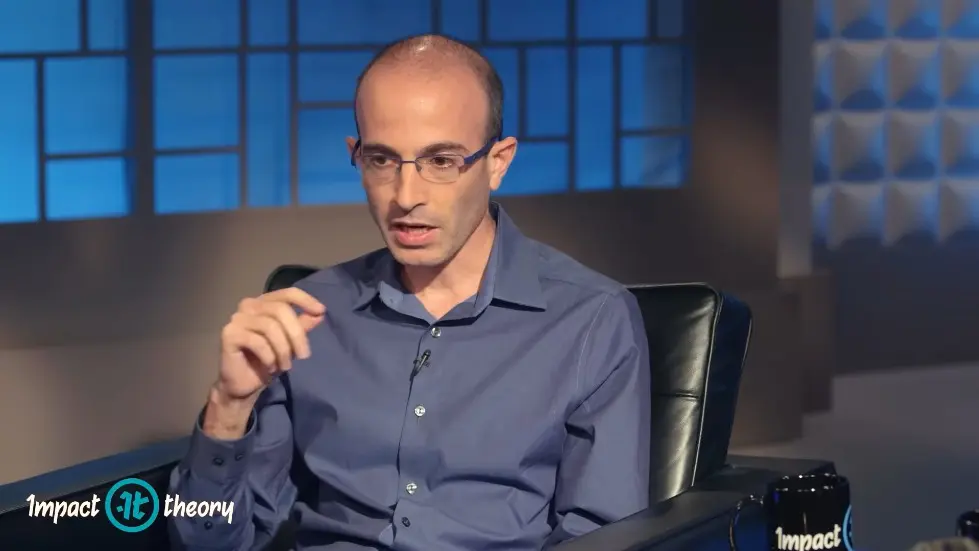
The Self is a Story
- Identity is a story that we constantly construct and embellish.
- The human mind is a machine that produces stories, and the self is a story, not a real thing.
- With new technologies, we have better abilities to construct ourselves, but a lot of the work has been outsourced to things like Facebook.
- People tend to make the fundamental mistake of thinking that their Facebook profile is really them.
- The profile doesn't reflect their actual existence, and the role of truth in the story we tell ourselves about ourselves is very little.
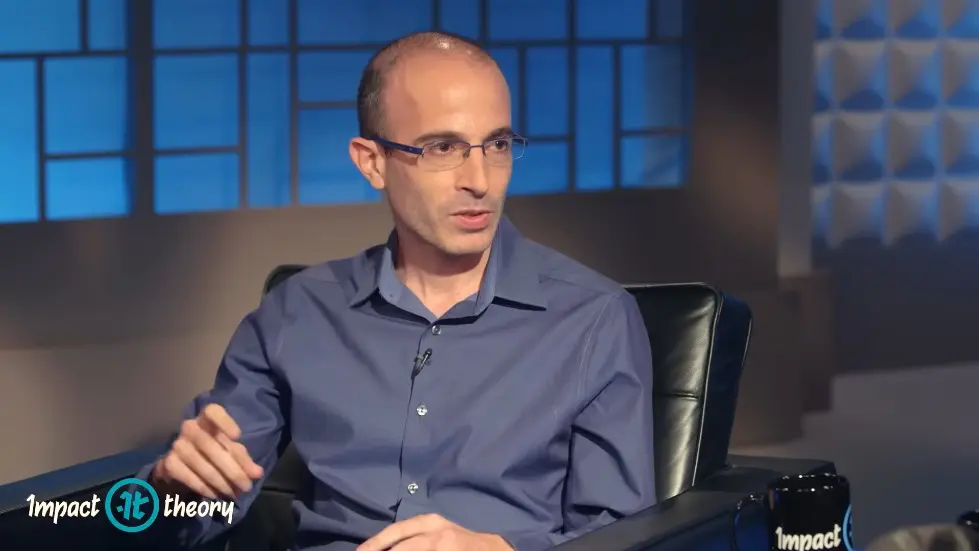
The Difficulty of Sticking with Reality
- We constantly edit the story of our life, just like the news on TV or making a movie.
- The end result is completely seamless and perfect, but it is actually made up of tiny disconnected bits that have been glued together.
- The story of our life is all kinds of beats and pieces, and only when we tell it to ourselves or somebody else, it kind of makes sense.
- The cost of trying to stick with reality as it is very high, demands a lot of effort, and is often very painful because we have to acknowledge many things about ourselves that we don't want to acknowledge.
- People have this fantasy of going to some retreat and taking out a week or two from life to really observe inside and explore who they are and what their authentic self is.
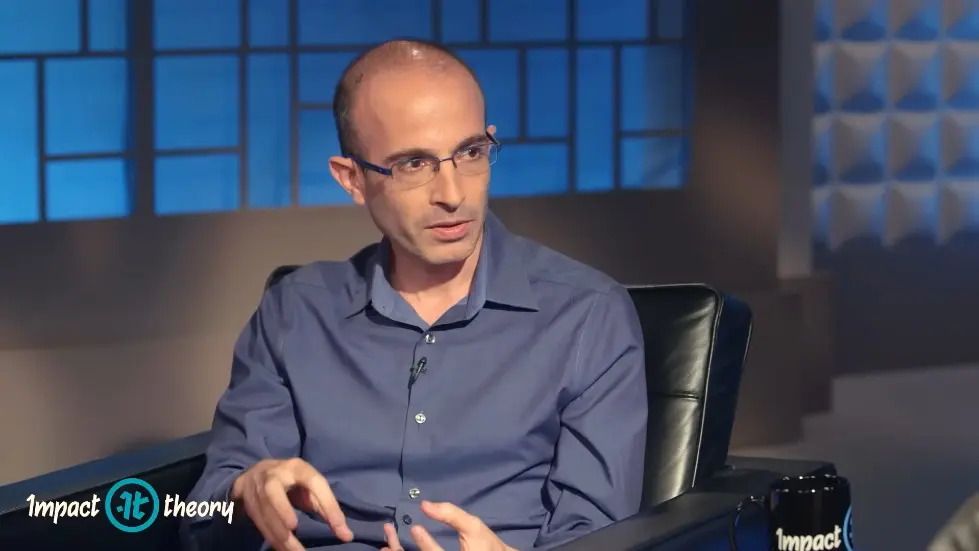
The Dangers of Genetic Engineering
- Genetic engineering is the ability to manipulate the DNA of organisms, including humans.
- It can be used to cure diseases, but it can also be used to enhance human abilities and create new classes of people.
- It can lead to the creation of a superhuman elite and a subhuman underclass.
- It can also lead to the loss of diversity and the homogenization of the human species.
- It raises ethical questions about who gets to decide what is considered an enhancement and what is considered a disease.
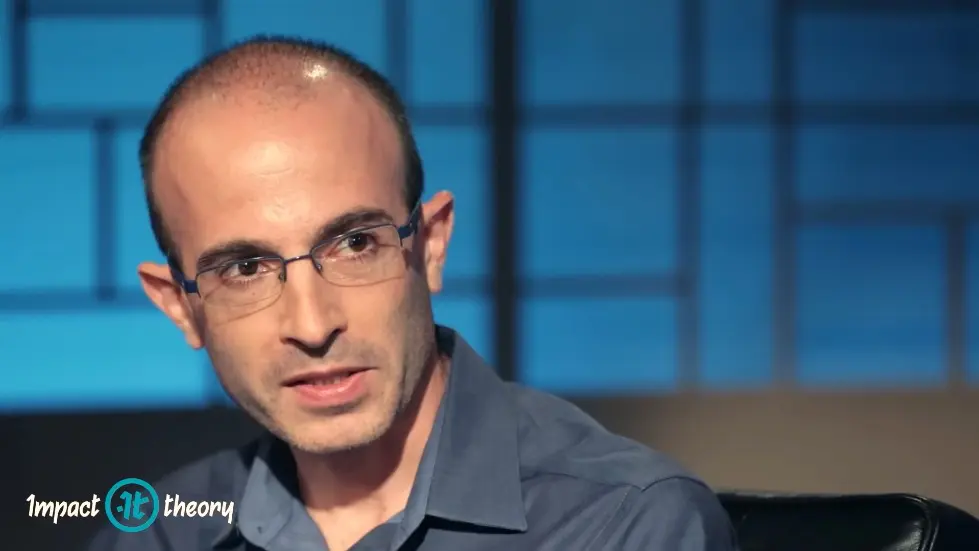
The Dangers of Artificial Intelligence
- Artificial intelligence is the ability of machines to perform tasks that normally require human intelligence.
- It can be used to solve problems and make our lives easier, but it can also be used to control us and make decisions for us.
- It can lead to the loss of jobs and the concentration of wealth and power in the hands of a few.
- It can also lead to the loss of privacy and the creation of a surveillance state.
- It raises ethical questions about who gets to decide what is considered ethical behavior for machines and what is considered ethical behavior for humans.
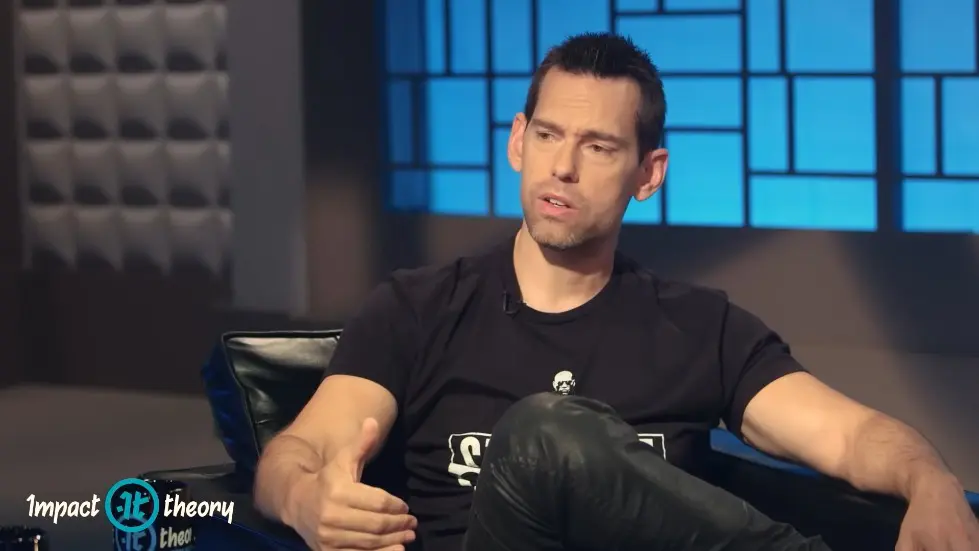
The Importance of Facing Reality
- Self-delusion comes at a high price, not just to oneself but to others and the world as a whole.
- Delusions can lead to things like wars and genocide.
- Living with the raw truth all the time is difficult, but the price of delusion adds up.
- It's important to be able to tell the difference between fiction and reality.
- Delusional people are more likely to be happy, but ultimately, facing reality is worth the price.
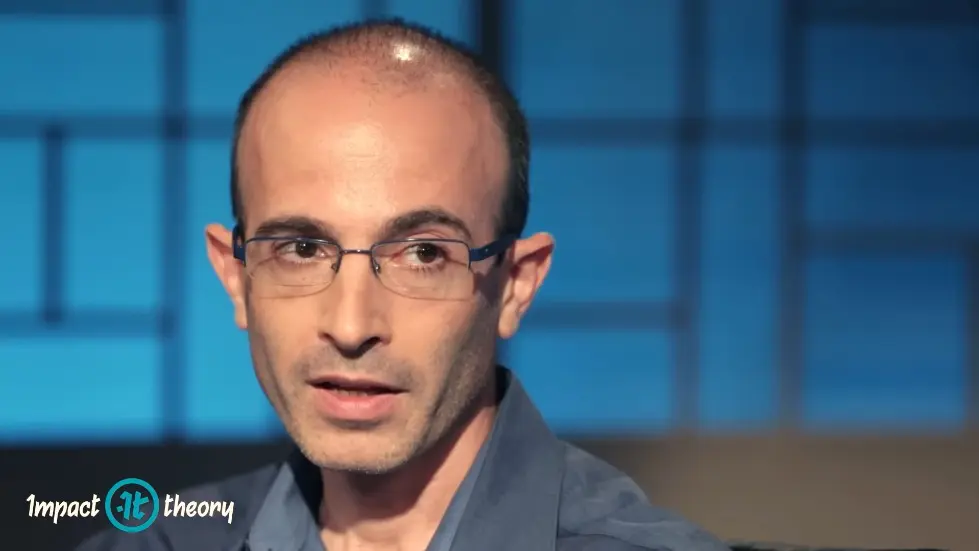
The Challenge of Reinvention in the Age of Automation
- The automation revolution will not be a one-time event, but a cascade of ever-bigger revolutions.
- There will be disruptions in the job market and other areas of life, such as relationships and politics.
- Reinventing oneself will become a constant challenge.
- Even with government support and adult education, the big question is whether humans can keep up with the pace of change.
- Jobs that seem safe now may not be in the future.
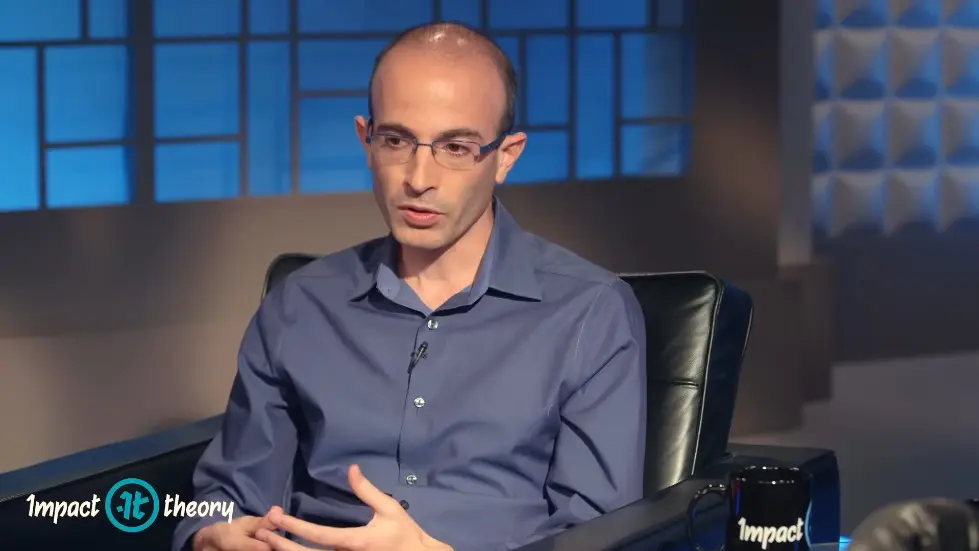
The Dangers of Genetic Engineering
- Genetic engineering has the potential to create a new class of superhumans and widen the gap between the rich and poor.
- It could also lead to the creation of new diseases and the spread of existing ones.
- Genetic engineering raises ethical questions about the value of human life and the definition of what it means to be human.
- It could lead to discrimination against those who are not genetically enhanced.
- There is a need for global cooperation and regulation to prevent the misuse of genetic engineering.
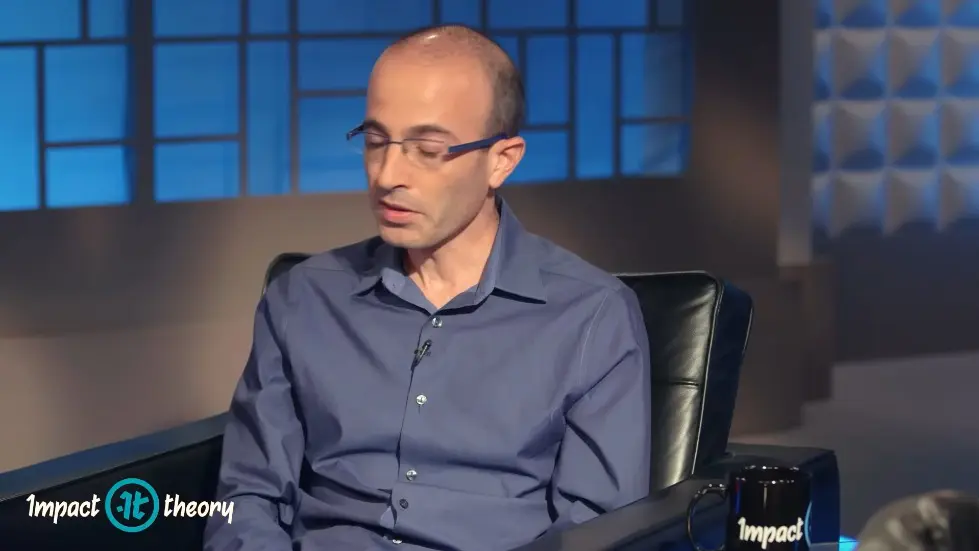
The Risks and Benefits of Artificial Intelligence
- AI has the potential to revolutionize many areas of life, from healthcare to transportation.
- It could also lead to mass unemployment and the concentration of wealth and power in the hands of a few.
- AI could be used to create autonomous weapons that could start wars or commit genocide.
- There is a need for ethical guidelines and regulation to ensure that AI is used for the benefit of humanity.
- AI could help solve some of the world's biggest problems, such as climate change and poverty.
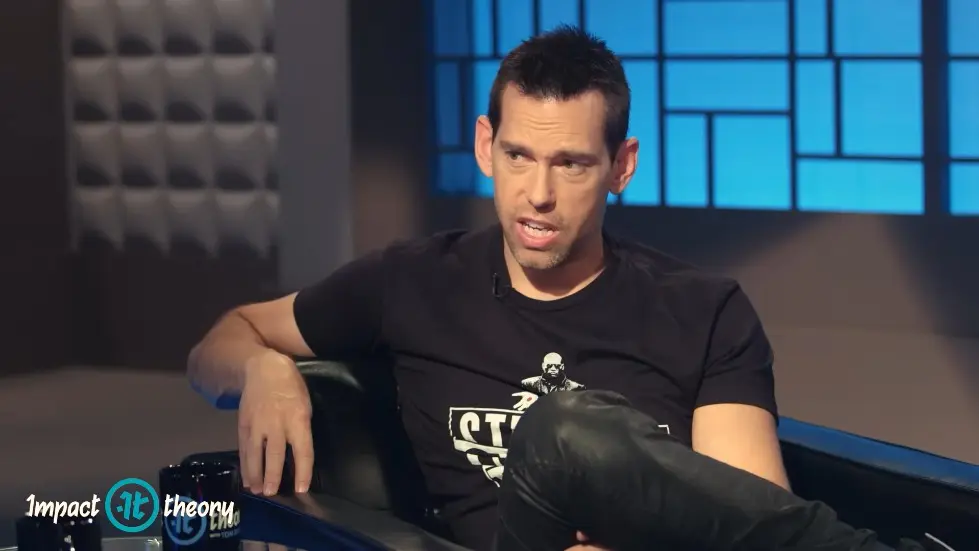
Reinventing Ourselves
- As human beings, we need to have the mental stability and emotional intelligence to reinvent ourselves repeatedly.
- Reinventing oneself becomes more difficult as one gets older.
- Education should focus on developing emotional intelligence and mental balance.
- Investing in developing skills to keep changing and learning throughout life is crucial.
- Education is more like constructing a tent that can be folded up and moved to another location quickly and easily.
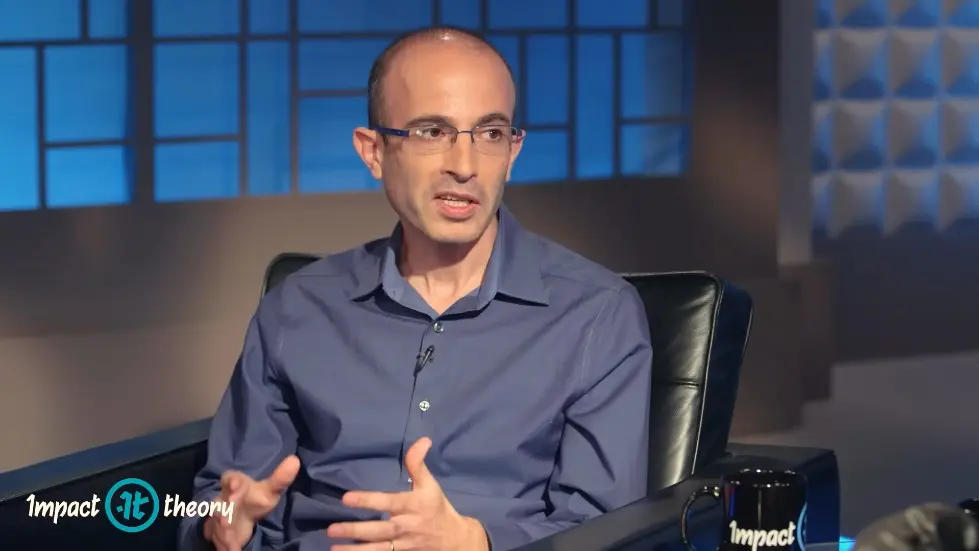
The Role of Science Fiction
- Our lives in the 21st century will be shaped by new technologies, especially in AI and biotechnology.
- Most people's understanding of these technologies comes from science fiction.
- Science fiction is now the most important artistic genre and should also be the most responsible.
- Science fiction has done a so-so job in exploring what could happen with new technologies.
- Some novels, TV series, and films are amazing in exploring the potential of new technologies.
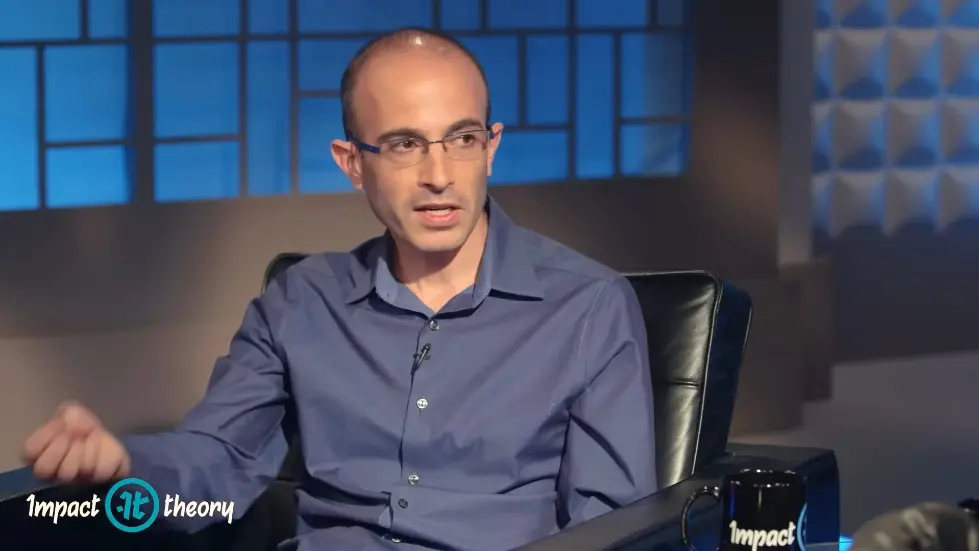
Preparing for the Future
- Nobody really knows how the job market will look like in 2040.
- Investing in emotional intelligence and mental balance is the best investment for the future.
- People should keep in mind that much of what they learn might be irrelevant in 20 or 30 years.
- Education should focus on developing skills to keep changing and learning throughout life.
- Education is more like constructing a tent that can be folded up and moved to another location quickly and easily.
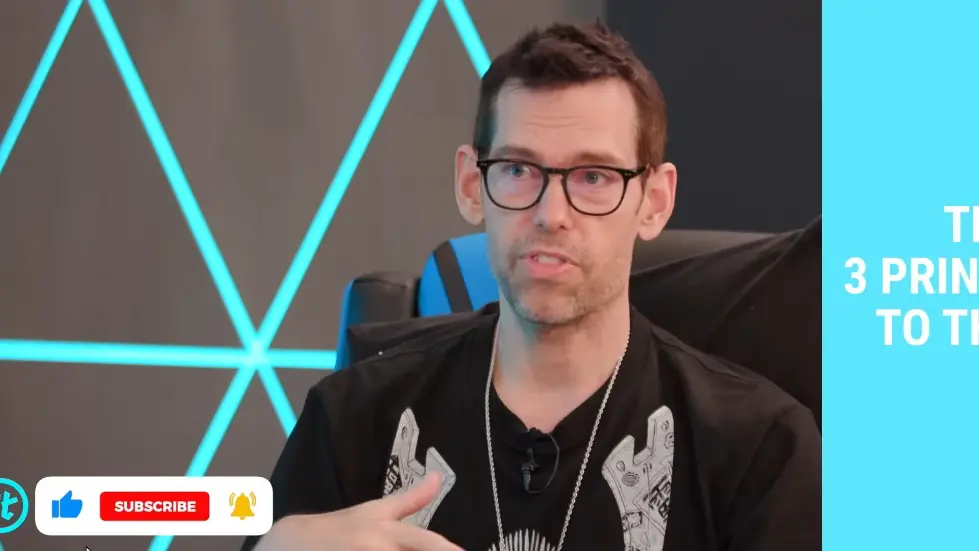
The Importance of Mental Flexibility
- As human beings, we need to have the mental flexibility to reinvent ourselves repeatedly.
- Reinventing oneself becomes more difficult as one gets older.
- Investing in developing skills to keep changing and learning throughout life is crucial.
- Education should focus on developing emotional intelligence and mental balance.
- Education is more like constructing a tent that can be folded up and moved to another location quickly and easily.
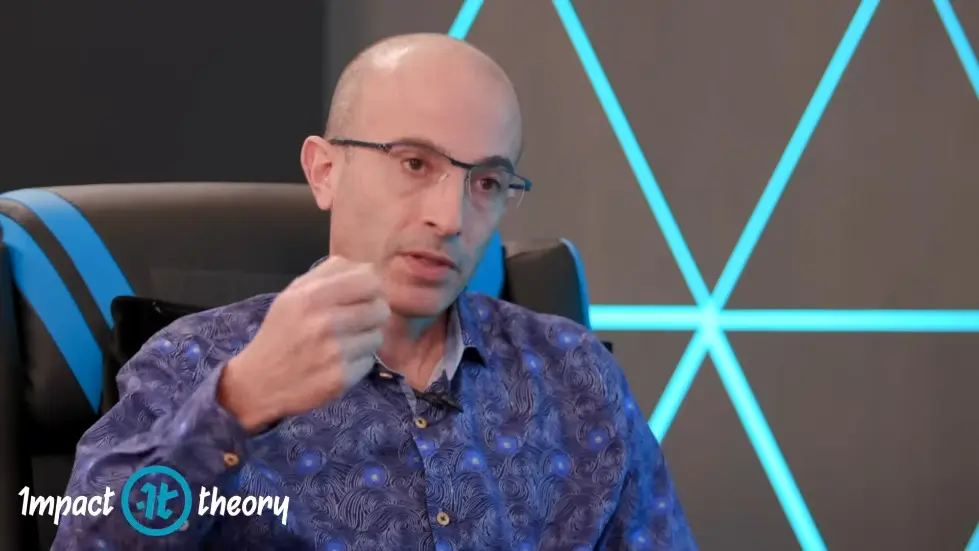
Embrace Change and Mental Flexibility
- Keep learning and changing throughout our lives to avoid being left behind.
- Mental flexibility is the most important quality to survive and flourish in the 21st century.
- Letting go of what we have learned in the past is necessary to learn new things.
- Virtual reality will require us to forget how physics and light and gravity work in the physical world.
- Humans have an amazing ability to adapt and change.

Unlocking Human Potential
- Unlocking the potential of half the human species, women, completely changed the job market in the 20th century.
- The potential to be presidents, judges, journalists, and scientists was always there, but it wasn't tapped.
- We have an amazing untapped potential within us that can help us face the challenges of the 21st century.
- We need to tap into this potential to survive and thrive in the new world.
- Genetic engineering and connecting humans to new devices are not necessary to unlock human potential.
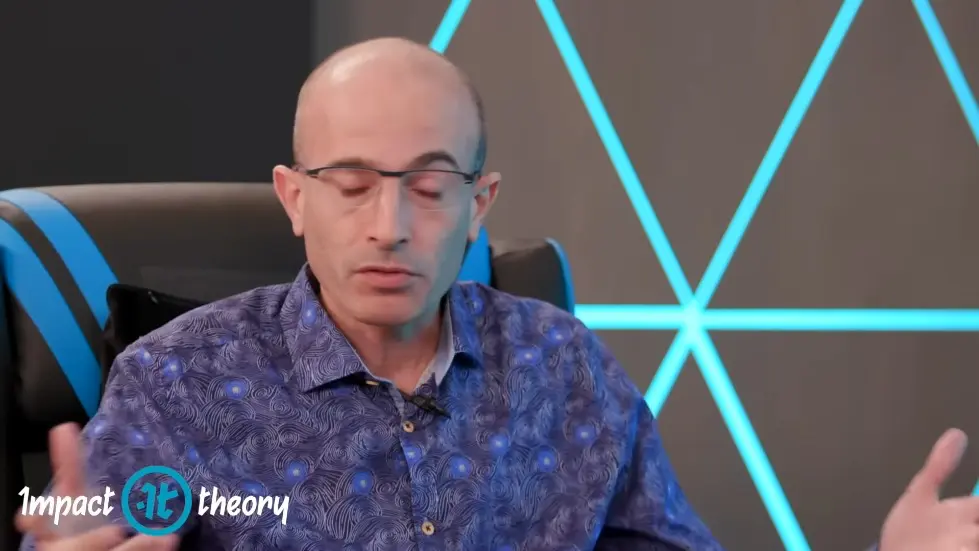
We Can't Do It Alone
- Individuals can't do it alone; we need to work together to face the challenges of the 21st century.
- Placing all the responsibility on individuals to adapt to change is not fair or realistic.
- The world is changing, and we need to change our institutions and systems to adapt to these changes.
- We need to work together to create a better future for all of us.
- Collaboration and cooperation are essential to surviving and thriving in the new world.
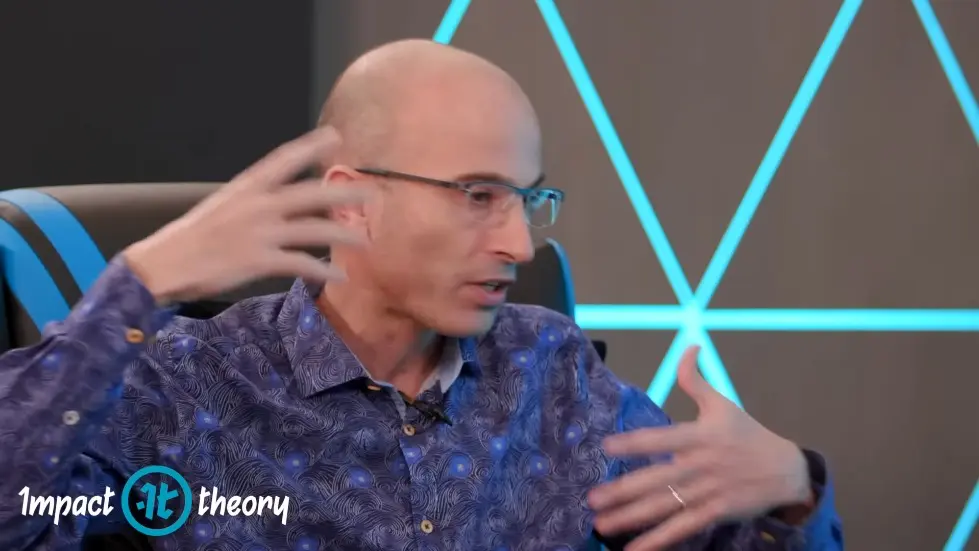
The Dangers of Genetic Engineering and Artificial Intelligence
- Genetic engineering and artificial intelligence have the potential to change the course of human evolution.
- These technologies can create new forms of life and intelligence that we cannot fully understand or control.
- We need to be cautious and thoughtful about how we use these technologies.
- We need to consider the ethical and moral implications of these technologies before we use them.
- We need to ensure that these technologies are used for the benefit of all humans, not just a select few.
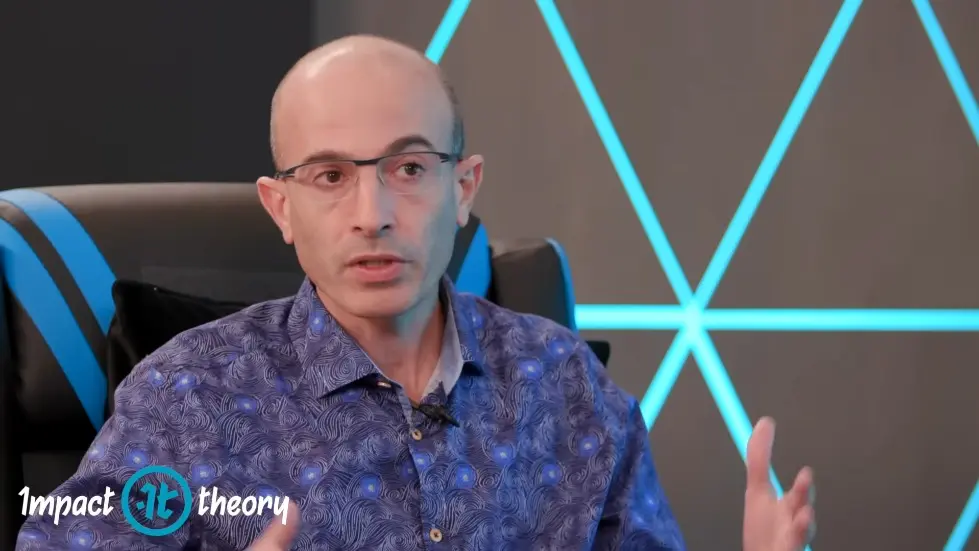
Retraining and Psychological Support
- Individuals cannot retrain themselves alone.
- Organizations and governments need to step in to ensure people are not left behind.
- New jobs will emerge, but the transition will be difficult.
- Financial assistance is needed for retraining.
- Infrastructure for educating and retraining people in their 40s and 50s needs to be built.
- Psychological help will be necessary to cope with the stress of reinventing oneself.
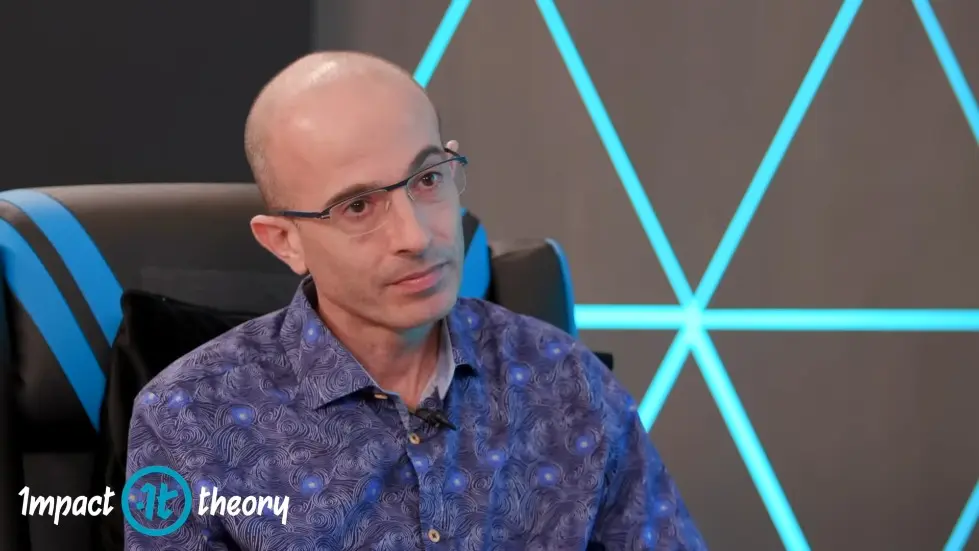
The Learn to Code Meme
- The future belongs to the technically savvy.
- People in jobs that do not require high education or IQ will be left behind.
- Learning to code is not a guaranteed safe job.
- Other jobs, such as therapists, community organizers, and philosophers, will be in demand.
- Jobs that involve taking care of people will be harder to automate.
- Government safety nets are necessary, but dragging individuals across the finish line leads to tyranny.
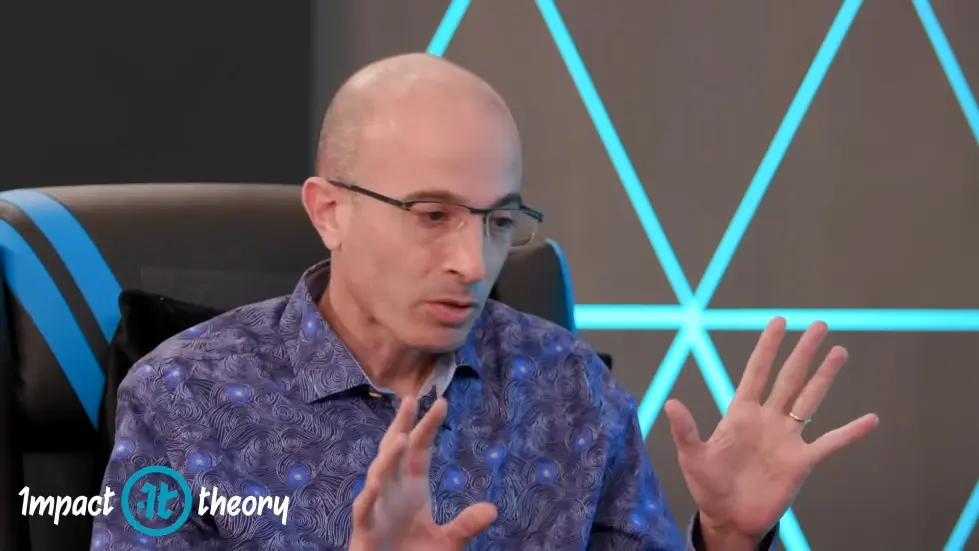
The Dangers of Genetic Engineering
- Genetic engineering can lead to a new class of superhumans.
- This could create a divide between the enhanced and the unenhanced.
- Enhancements could be used for military purposes, leading to a new arms race.
- Enhancements could also be used for economic purposes, leading to a new class system.
- Regulation is necessary to prevent these outcomes.
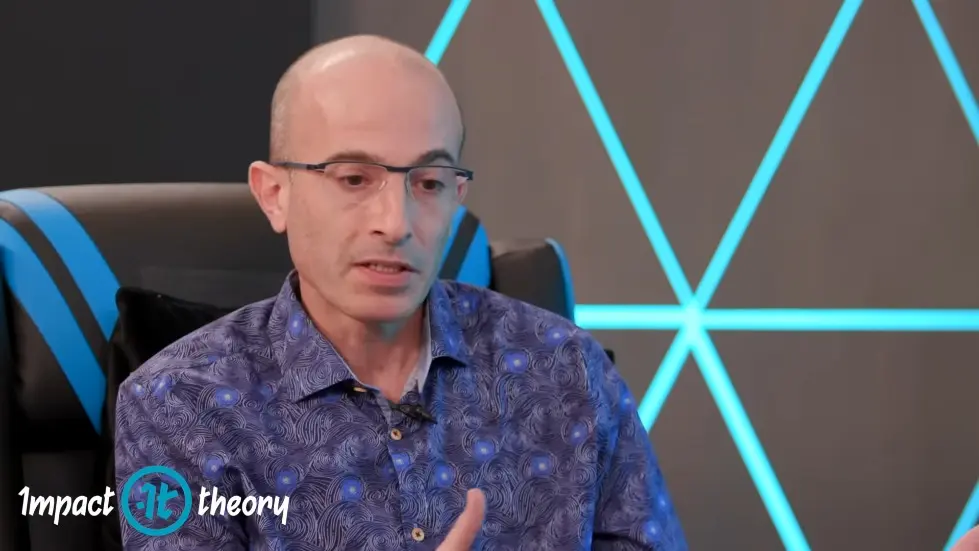
The Dangers of Artificial Intelligence
- Artificial intelligence could lead to mass unemployment.
- AI could also lead to a concentration of power in the hands of a few tech companies.
- AI could be used for surveillance and control, leading to a loss of privacy and freedom.
- AI could also be used for military purposes, leading to a new arms race.
- Regulation is necessary to prevent these outcomes.
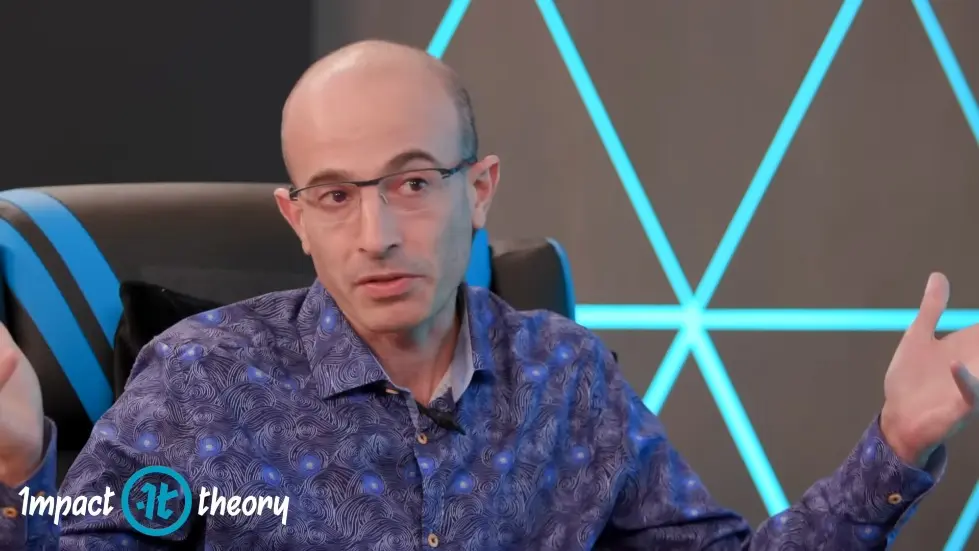
The Importance of Government Support
- Automation is a threat to many jobs, including those in the textile industry.
- Virtual clothing design is a new industry that requires different skills.
- Without government support, many people will be left behind.
- Basic education is necessary, but individuals still have the responsibility to use it wisely.
- Successful systems in history are complex and do not place all responsibility on individuals.
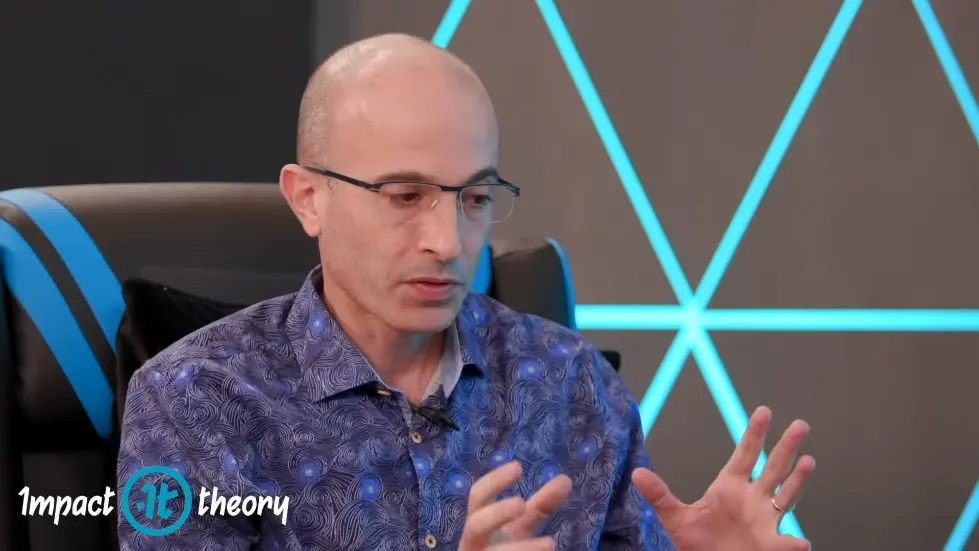
The Culture War and Tension Between Left and Right
- There is a necessary tension between the left and right.
- The left and right are both solutions to the freeloader problem.
- Personal responsibility is necessary, but it can lead to tyranny.
- The tension in the middle is necessary, but both sides must accept it.
- Democracy cannot survive if political rivals are seen as enemies.
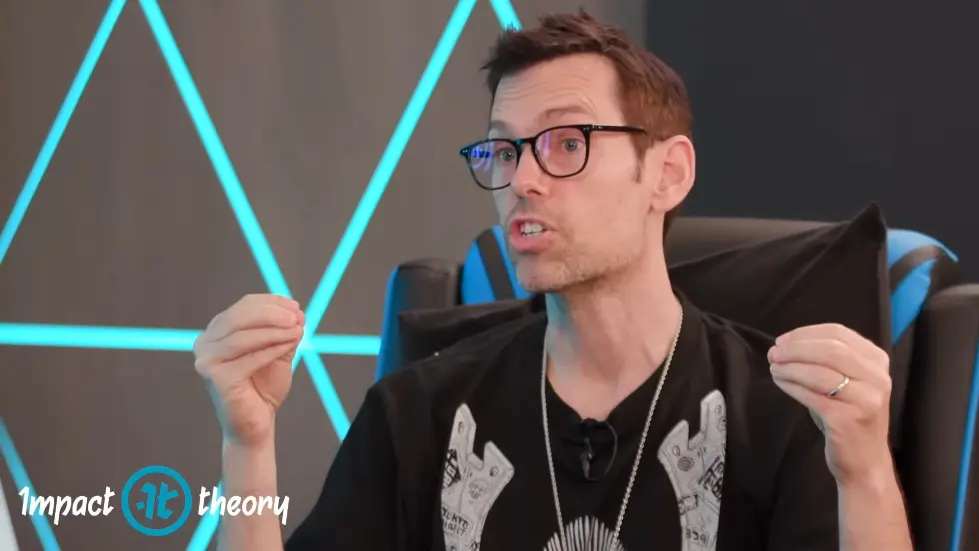
The Dangers of Genetic Engineering
- Genetic engineering can lead to inequality and discrimination.
- It can also lead to the creation of new classes of people.
- There is a risk of creating a superhuman elite.
- Genetic engineering can also lead to the loss of diversity and creativity.
- It is important to have a public debate about the ethics of genetic engineering.

The Future of Artificial Intelligence
- Artificial intelligence has the potential to revolutionize many industries.
- It can also lead to the loss of many jobs.
- There is a risk of creating a new class of people who are not needed in the workforce.
- It is important to ensure that AI is used for the benefit of all people, not just a few.
- AI should be designed to enhance human abilities, not replace them.
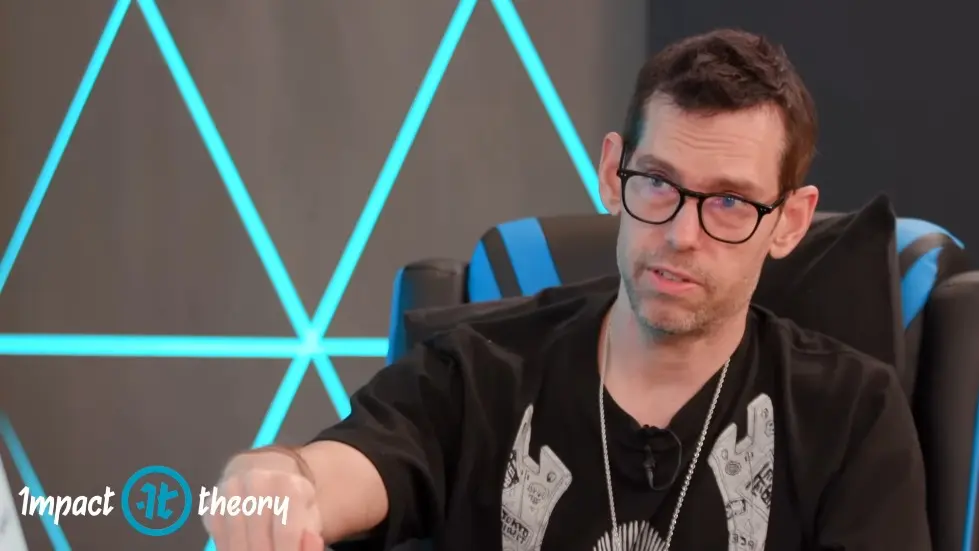
Three Worldviews of the 20th Century
- Fascism: the state and nation are the only things that matter, individuals and groups don't matter at all.
- Communism: the class to which you belong is at the center, individual human beings count for nothing.
- Liberalism: at the center we have the individual, but we need collective action and cooperation to build systems like healthcare and education.
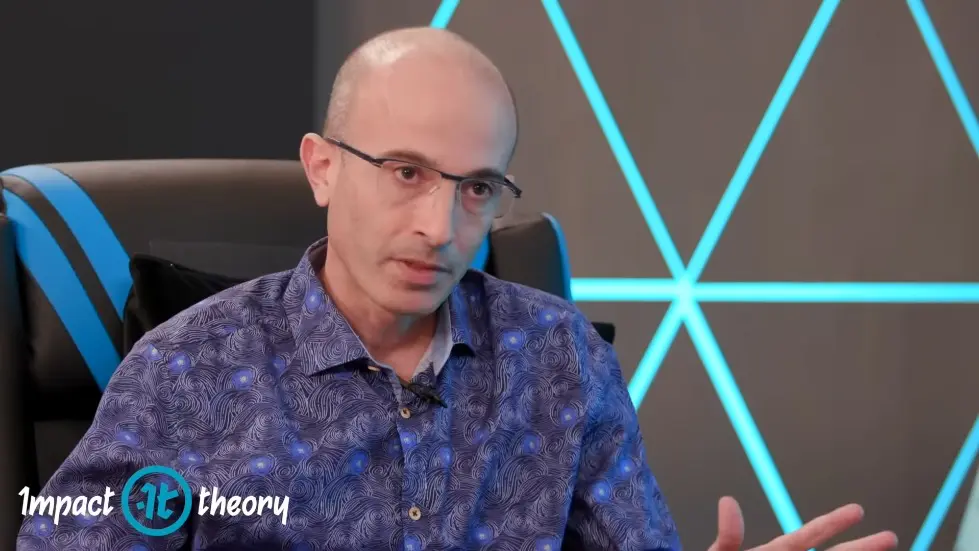
The Breakdown of Liberalism
- Liberalism is breaking down because people are seeing their neighbors and people in other states or towns as their enemies.
- Ideological differences today are much smaller than they were 50 or 100 years ago.
- Nationalism, when understood correctly, is a force for good and means loving the other people in your nation and making sacrifices for them.
- Fascism is when the nation is the only thing that matters and individuals and groups don't matter at all.
- Communism is a variation of fascism that thinks more in terms of class than nation.
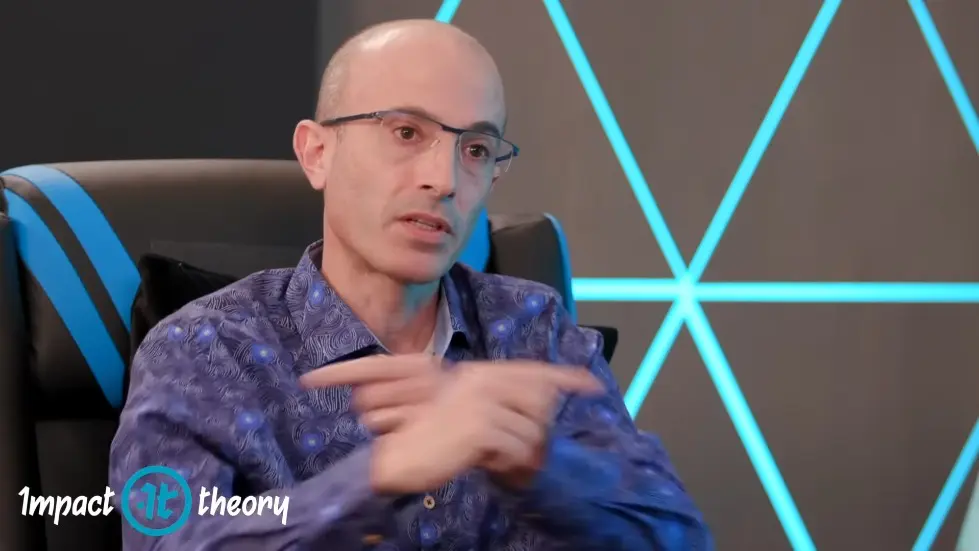
The Dangers of Genetic Engineering
- Genetic engineering can create a new class of superhumans who are much smarter and stronger than the rest of us.
- This could lead to a new kind of discrimination and inequality, where the superhumans dominate the rest of us.
- It could also lead to a new kind of totalitarianism, where the superhumans control everything and the rest of us have no say.
- We need to have a serious conversation about the ethics of genetic engineering and what kind of society we want to create.
- We need to make sure that everyone has access to the benefits of genetic engineering, not just a privileged few.
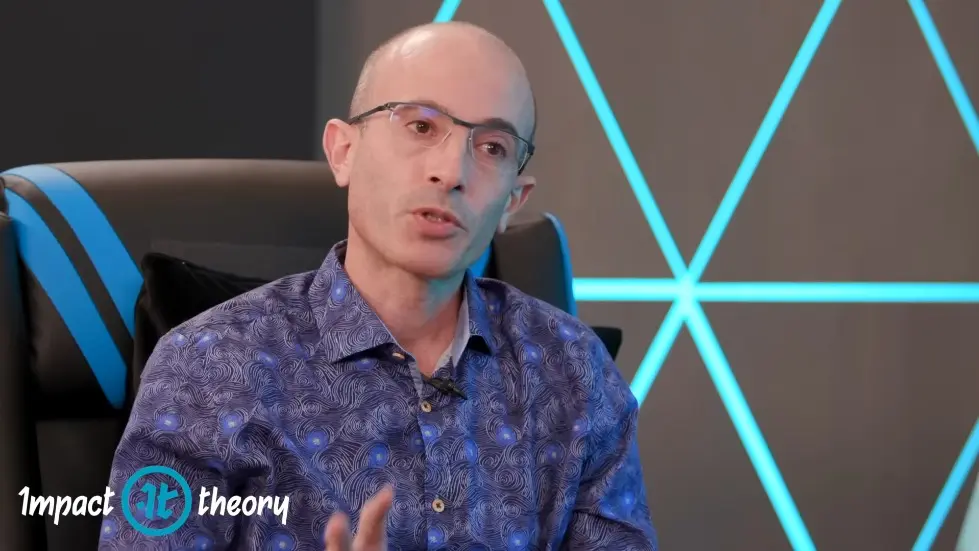
The Dangers of Artificial Intelligence
- Artificial intelligence could lead to mass unemployment as machines take over jobs that were previously done by humans.
- It could also lead to a new kind of inequality, where the people who own the machines become much richer than the rest of us.
- It could also lead to a new kind of totalitarianism, where the machines control everything and the rest of us have no say.
- We need to have a serious conversation about the ethics of artificial intelligence and what kind of society we want to create.
- We need to make sure that everyone benefits from the advances in artificial intelligence, not just a privileged few.

Lesson 1: Liberty
- Throughout history, people have not had the liberty to choose their own government, religion, profession, or spouse.
- Monarchy, communism, and Nazi Germany are examples of governments where people did not have the liberty to choose their own government.
- Liberalism, which advocates for individual liberty, has become the dominant ideology in the world today.
- Even conservatives who disagree with liberal positions on hot-button issues like abortion and gun control are still liberal in the historical sense.
- There is more ideological agreement today than there was 50 or 100 years ago, even on controversial issues like abortion and gay marriage.

Lesson 2: Equality
- Equality is a relatively new concept in human history.
- For most of history, people believed in hierarchies and that some people were inherently superior to others.
- Today, most people believe in the principle of equality, but there are still many forms of inequality that exist.
- Examples of inequality include economic inequality, gender inequality, and racial inequality.
- Technology has the potential to exacerbate existing inequalities or create new ones.
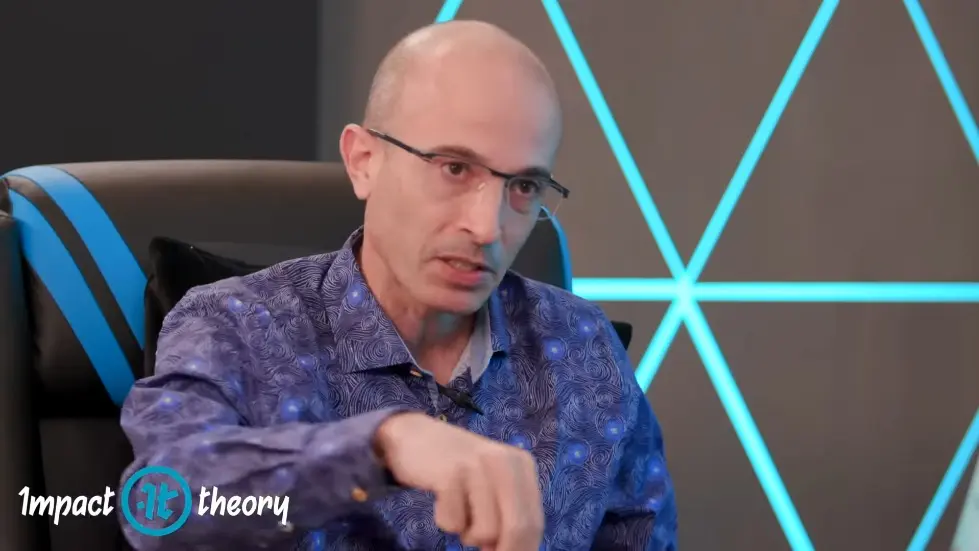
Lesson 3: Community
- Humans are social animals and have always lived in communities.
- Today, people are more connected than ever before, but there is also a sense of loneliness and isolation in modern society.
- Technology has the potential to bring people together or drive them apart.
- There is a need for a sense of shared identity and purpose in modern society.
- Religion, nationalism, and consumerism are examples of ways that people have tried to create a sense of community.
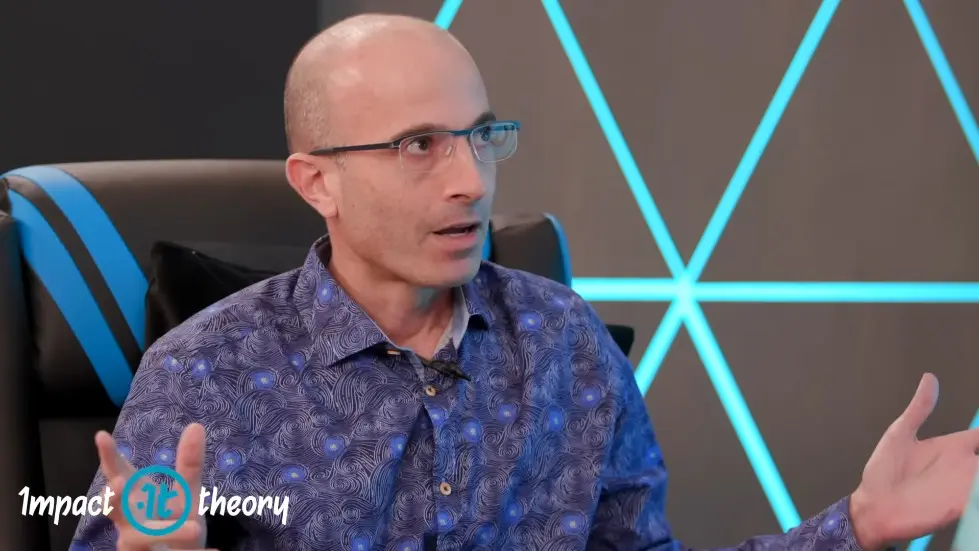
Lesson 4: The Environment
- Humans have always had an impact on the environment, but the scale of that impact has increased dramatically in recent centuries.
- Climate change, pollution, and deforestation are examples of environmental problems that threaten the survival of human civilization.
- Technology has the potential to both exacerbate and solve environmental problems.
- There is a need for a global effort to address environmental problems, but this is difficult because of national interests and short-term thinking.
- Humans need to rethink their relationship with the environment and find ways to live sustainably.
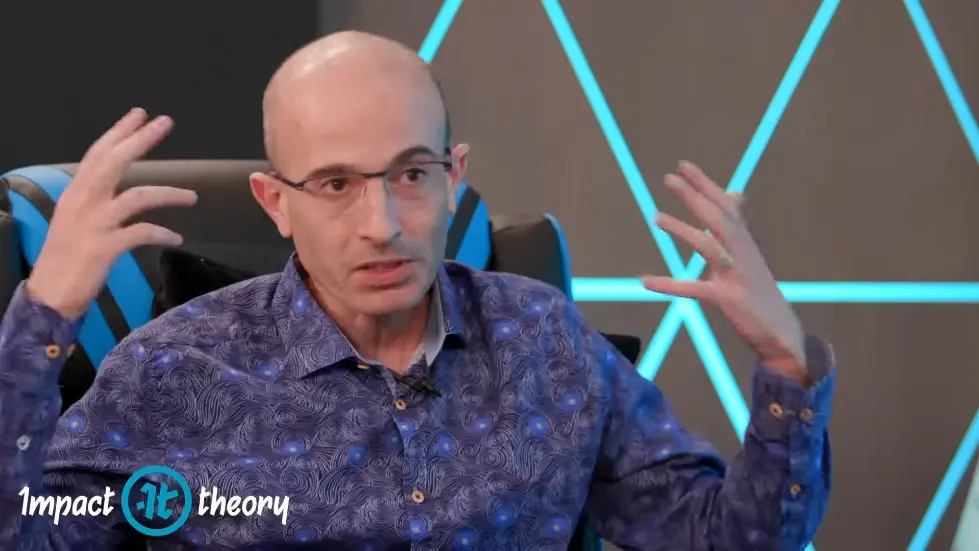
The Dangers of Ideological Differences
- Ideological differences are small on the ground but big in people's imagination.
- People have fantasies about what the other side is planning to do which are completely divorced from reality.
- In the 20th century, you didn't need to fantasize what the Communists or Fascists wanted to do, they told you.
- Today, much of the gap is mostly in the imagination of people.
- Terrible things can happen without any good reason at all, and afterwards, when you look back, you ask what was this all about.

The Tragedy of History
- People sometimes have big wars over fantasies in their minds.
- Fantasies often shape history and cause people to do terrible things.
- The tragedy of history is that very often you get terrible things happening without any good reason at all.
- People have big wars over issues that seem completely incomprehensible today.
- Fantasies often cause people to do terrible things, like the Russian invasion of Ukraine.
- Fantasies often shape history and cause people to do terrible things.
Watch the video on YouTube:
5 Lessons For The 21st Century: How To SURVIVE & THRIVE In The New World | Yuval Noah Harari - YouTube
